




























EDITORIAL
Editor:
Johann Tasker | T: 07967 634971
E: johann@ruralcity.co.uk
Design:
Mark Shreeve | T: 01502 725839
E: mark.shreeve@micropress.co.uk
Advertisement production:
Jade Soanes | T: 01502 725840
E: jade.soanes@micropress.co.uk
ADVERTISING SALES
Chloe Miller | T: 01502 725844
E: chloe.miller@micropress.co.uk
Danny Lewis | T: 01502 725862
E: danny.lewis@micropress.co.uk
Mat Roffey | T: 01502 725854
E: mat.roffey@micropress.co.uk
Mark Tait | T: 01502 725803

E: mark.tait@micropress.co.uk
Farmers looking for some much-needed extra income can apply to join the government’s revamped Sustainable Farming Incentive, which opens for applications this month.
As we mentioned last month, the SFI has been revised to make it easier to join. Farmers can be rewarded for undertaking 23 actions. They include improvements to soil health, hedgerows, integrated pest management and buffer strips.
The wider range of actions means farmers could be paid from £10 per 100m for managing one side of a hedgerow; a further £10 per 100m to maintain or establish hedgerow trees; £129/ha for multi-species cover crops; or £589 for a nutrient management review.
Some growers and livestock producers will beg to differ. No amount of income from the SFI will make up for money lost due to the phase-out of the Basic Payment Scheme – and those cuts are really starting to bite on many farms.
Defra hopes 70% of farmland will eventually be managed under the SFI. Whether that target is met will depend on whether farmers believe joining the scheme makes financial sense. After all, farming is a business, not just a way of life.
Midland Farmer is a controlled circulation magazine published monthly for farmers and growers in the Midlands (Derbyshire, Herefordshire, Leicestershire, Lincolnshire, Northamptonshire, Nottinghamshire, Shropshire, Staffordshire, Warwickshire, West Midlands and Worcestershire) or companies supplying goods and services to the sector. To be included on the circulation list, a farmer must have a minimum of 70 acres of land, or 50 dairy/beef stock, or 50 breeding sows/250 growing stock, or 15,000 laying hens/broiler chickens. Intensive horticulture units are required to have a minimum of two hectares.
If you no longer wish to receive this magazine, please email your name, address and postcode as it appears on the wrapper to adam.gunton@micropress.co.uk
© Countrywide Publications 2023
Published by Countrywide Publications, Fountain Way, Reydon Business Park, Reydon Suffolk IP18 6DH


T: 01502 725800
Printed by Micropress
Printers Ltd T: 01502 725800
Adopted at scale, farm minister Mark Spencer says these actions will support sustainable food production and contribute towards the environmental targets set out in the government’s Environmental Improvement Plan.
Farm business advisers agree. Savills, for example, says the revamped SFI is an opportunity for farmers to boost their income while producing food sustainably. And it could also be a profitable alternative on land where food production is no longer viable.
Farmers will make their own assessment of the SFI based on their own individual circumstances. It might not be as lucrative as many farmers would wish. But it would be foolish to dismiss the scheme out of hand completely.
Many SFI actions are easy to undertake. In some cases, farmers will be doing them already. Others are more involved and will involve a different or unfamiliar approach to farming.
But do consider joining the scheme. Otherwise, the government will have the perfect excuse to withdraw the SFI completely – leaving farmers without what could be a useful revenue stream.
Johann Tasker Editor• Government support 'essential'
• Farmers have key role to play
The government’s failure to pay farmers properly for looking after the environment threat ens to leave the UK unable to produce enough of its own food, says an influ ential think tank.

Urgent actionmust be taken to sup port farmers by funding measures that help to mitigate climate change, re duce greenhouse gas emissions and restore nature, says the Institute for Public Policy Research (IPPR).
Global warming means livestock are increasingly exposed to heat stress and the seasons are changing, says the IPPR. Pests and diseases are living longer in warmer winters, droughts are impacting crop growth and floods are increasing soil runoff and erosion.
Published last month, the think tank’s analysis also shows that:
• Trade deals struck since Brexit are undercutting British farmers and climate goals, while effectively exporting the UK’s carbon and ecological footprint elsewhere in the world.
• The UK’s food system is too wasteful – and skewed towards highly processed food which is damaging to human health and the environment.
• Food poverty is increasing with lower-income households disproportionately affected by food price rises and less able to afford a good diet
Calling for a transition to a more planet-friendly production system, the IPPR study says UK landuse needs to change, says the study.
But it warns that responsibility for the transition cannot be left to producers alone. Farmers are already grappling with a system that does not fairly reward them for their produce, it adds.
and to reach net zero, it says.
The IPPR says £2.4bn a year is needed for the next decade for farmers to deliver. And it says trade deals should be strenghened so food imports are produced to the same standards as domestic produce.
Report co-author Lesley Rankin said: “The climate and nature crisis poses one of the greatest risks to the UK’s domestic food production, and the UK government has consistently failed to treat this threat with the urgency it deserves.
“If we are serious about ensuring food security and leaving our environ-
British farmers are being undermined by unfair competition, says the report
The report calls for a long-term vision for the future of land and agriculture, which must reflect the views of farmers as well as consumers.
Researchers asked local communities panels how they felt climate change could be tackled in way that is fair to producers and the public.
Ms Rankin said: “Protecting our planet, boosting farmers’ livelihoods and food security go hand-in-hand. Now it’s on the government to act to put us on a path that provides a better life for us all.”
Farmers have a key role in producing food and protecting the environment – but need government support to succeed, says the report.
The study was co-authored by Luke Murphy, head of the fair transition unit at the Institute for Public Policy Research (IPPR). He said: “The lack of a government strategy for our food and farming sector has serious consequences.
“It’s undermining our ability to produce food domestically, making farmer’s lives hard-
er, and entrenching a food system that is wasteful, bad for our health, and damaging to the environment.”
A government spokesman said: “We are committed to backing our farmers so we can grow our economy, protect nature and deliver the food security that is needed.
“We have embarked on our next steps to deliver this, by committing to maintain the £2.4bn annual farming budget and investing in productivity and innovation on farms.”
At the time of writing we are preparing for harvest and the onslaught of the manic drainage season ahead. Fortunately for us, during the times when we have not been draining we have always kept busy mainly because we are “so more than just drainage”.
The past month has seen us installing a new sewage treatment plant on an estate for some of their cottages.



Tidying up a 135 acre site for a premier European rail show. Then carrying out repairs and reinstatements to the grass, roads and verges once the show had finished.

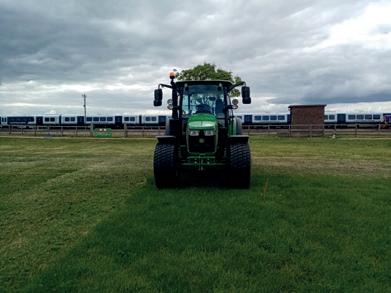
We even gave their security a hand by cutting back scrub, brush and branches to give them a better view of the surrounding site.

Locating and clearing a ditch and outfall for a client in readiness for an intensive drainage system on a 60 acre block of land once his crops are off the fields.

It has been a very busy and varied month. . .

SO MUCH MORE THAN JUST

Charitable donations are helping to raise awareness of the support available to farmers facing a raft of challenges.
Regional auctioneers Halls do nated part of the commission from two of its sales to the Royal Agri cultural Benevolent Institution (RABI), which provides financial, emotional and practical support to farmers and their families in time of need.
Jonny Dymond, senior auction eer and manager at Shrewsbury Auc tion Centre, said: “The opportunity arose with both dispersal sales –which had a connection with health and wellbeing – for the company to support RABI.

“We took the decision as a company to make a sig nificant donation to RABI which does such great work supporting farming com
Kate Jones: Farming youngsters often feel unable to
munities. We know that the money is going directly to support people in the rural community who are struggling for a variety of reasons.”
RABI West Midlands Kate Jones said help was available to individuals and farming families. She added: “It is extremely generous of Halls to donate part of their sale commission to the charity. We really appreciate their continued support.”

RABI research suggests that 16% of farming youngsters do not confide in anyone.
The Big Farming Survey considered the relationship between the physical and mental health of farming people and the health of
their farm businesses.
Rather than talking, it found that many farming youngsters keep things to themselves. “Young people may seem to have access to everything because they are active on social media, but that is not a true reflection of what they are really feeling.
RABI provides mental health training to equip people to have conversations with those that might be struggling – to ask if they really are ok. By supporting people in the farming community, RABI aims to gives them a breathing space.
“Often when you step back for a moment, you see things from a different perspective,” said Ms Jones.
Confidential support is available via RABI’s freephone helpline on 0800 188 4444. To donate to RABI, visit rabi.org.uk.
Potato growers are urged to remain vigilant after Colorado beetle larvae was found in the UK for the first time in 46 years.
The Animal and Plant Health Agency confirmed on 11 July that Colorado beetle larvae had been identified in a Kent field. It followed laboratory diagnosis of samples taken by APHA’s Plant Health and Seeds Inspectorate.
APHA said it was working closely with the affected grower to eradicate the larvae from the site, including a 1km survey to determine whether there are further cases beyond the immediately infested area.
It is believed the larvae may have been accidentally transported to the UK on a lorry carrying fresh produce via one of the French ports. No fully formed beetles have been found.
Unless eradicated, Colorado beetles are a significant threat to potato crops. Adult beetles and larvae feed on the foliage of potato and other plants in the nightshade family and can completely strip them of their leaves if they are left uncontrolled.
UK chief plant health officer Nico la Spence said: “We are responding swiftly through our eradication pro gramme, involving ground surveil lance to look for beetles and larvae at the site and surrounding area. She added: “While this pest does not pose a threat to human health, we encourage all growers, farmers, processors and the public to remain vigilant and report any sightings, especially in Kent.”
The beetle is not endemic to the UK and is currently regulated as a Great Britain quarantine pest, with import and movement restrictions in place for susceptible host material.
APHA is obligated to act upon the findings and eradicate this pest to support our efforts to maintain this status. Statutory Notices will be issued to ensure the containment and eradication of this pest is undertaken.
The beetle is bright yellow or orange with black stripes and is usual-
3mm in width. Its larvae are a reddish brown in colour, round and globular, and up to 15mm in length.
Defra has produced a Colorado potato beetle plant pest factsheet with more information about the beetle’s life cycle and provides information on how to differentiate it from some of our native and introduced species.
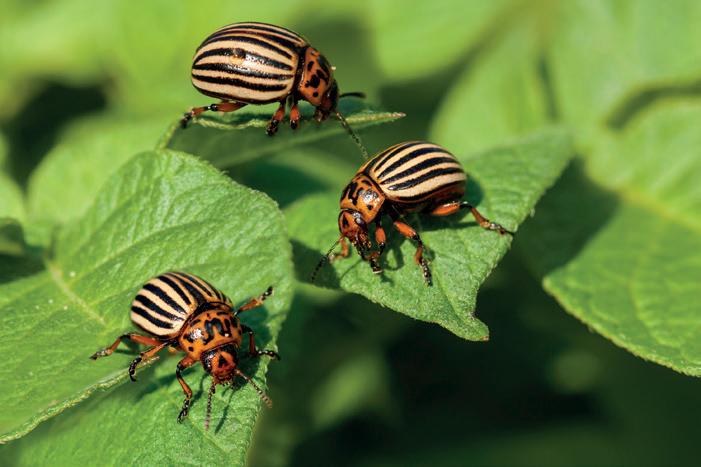
The beetles are occasionally imported into the UK from continental Europe as ‘hitchhikers’ on non-host plant material, such as leafy vegetables, salad leaves, fresh herbs and grain and are reported to the UK Plant Health Service who act on the findings.
Although distinctive in appearance, several insects are frequently mistaken for Colorado beetle. There have only been two outbreaks of Colorado potato beetles in the UK in the past 70 years, one in 1976 and one in 1977.
High bolting levels in sugar beet this year are set to provide plant breed ers with valuable information about varieties best suited to the UK.
This year’s crop could see some of high est levels of bolters for many years, says Ian Munnery, UK director for specialist sugar beet breeder SesVanderhave.

This will provide the opportunity to assess breeding lines for potential varieties that will produce least bolters under UK conditions –especially in early sown plots.
“The benefits of early sowing are better rooting, more growing days across the season, the advantage of innate mature plant resistance and more resilience to drought
stress,” says Mr Munnery.
“However, early sowing combined with cold conditions leads to the crop being stressed and entering ‘survival’ mode, which means bolting. That will lead to reduced yield and leave a legacy of weed beet seed.”
A global beet breeder, SesVanderhave conducts extensive UK bolting trials to identify the most robust varieties for British growers. Bolters are removed from the field and counted in June, July and August.
“By the end of the season we will have identified varieties with lower bolting potential for UK growers,” says Mr Munnery.
Left unchecked, Colorado beetles are a significant threat to potato crops
We encourage all growers to remain vigilant
“












You only get one shot, so don’t leave your seed to chance. Agrii Seed Specialists help you select from our industry-leading sustainability rated varieties, rigorously tested in local and national trials to ensure you get a high-performance seed tailored to your farm’s needs. No matter your requirements, you can trust our unrivalled logistics to deliver the right variety with the right dressing, right when you need it. Why settle for anything less?



FIND OUT MORE AT WWW.AGRII.CO.UK/SEED














Growers and agronomists have been submitting brown rust samples to the UK cereal pathogen virulence survey (UKCPVS) to help investigate a suspected increase in its virulence.
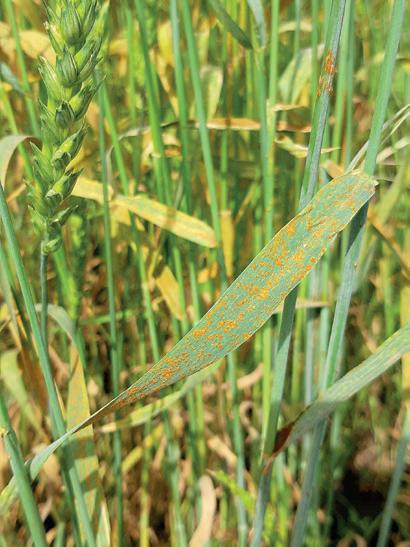
The disease is the Achilles heel of many UK wheat varieties, said agronomist Patrick Stephenson, president of the Association of Independent Crop Consultants.
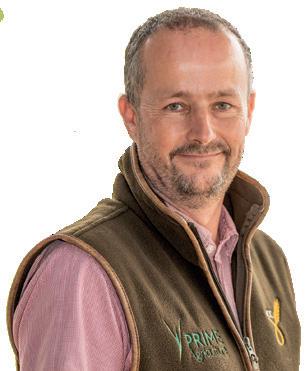
Brown rust is now being found in untreated trials of Theodore winter wheat –a hard group 4 wheat with a resistance score of 8.
This could indicate a potential shift in the UK population, said Mr Stephenson.
The UK’s warming climate was encouraging brown rust to spread, he told the AICC summer technical conference. High levels of late sea son brown rust were being found much further north follow ing the hot June.
“Only 13 samples have been received so far and UKCPVS needs more,” he said.

“Please, if you find brown rust, send in a sample so we can get a better handle on what’s going on. There is certainly some thing happening out there.”
While pathologists need disease samples from varieties with high resistance ratings, samples from susceptible varieties are also important, said Mr Stephenson.
This is because brown rust on susceptible varieties can provide scientists with an insight into population diversity.
AICC chairman and eastern re gion Prime Agriculture agrono mist Andrew Blazey (left) called on farmers to engage with the monitoring initiative. Providing samples for researchers was criti cal, he stressed.
“It doesn’t take much time to take a sample post it – and results help to ensure advisers and growers have the most up to date information on managing some of these challenges in UK crops.”
When taking brown rust, yellow rust or mildew samples in the field, growers should take infected leaves and wrap them in tissue paper, before placing them in an envelope and sending them to FREEPOST UKCPVS with a completed sample form. For full details, visit www.niab.com.
71% of the UK countryside is farmland, so getting biodiversity right on farms is essential – for our climate, wildlife and food security. Trees are vital and we’ve helped farmers plant over 4 million of them so far, benefiting business, people and nature for years to come.
Plant a brighter, healthier future on your land with our MOREwoods scheme. Our expert advisers will guide you through the application process, create a bespoke species mix, and supply the trees and protection you need. All with generous funding of up to 75%. Apply today to plant this winter.
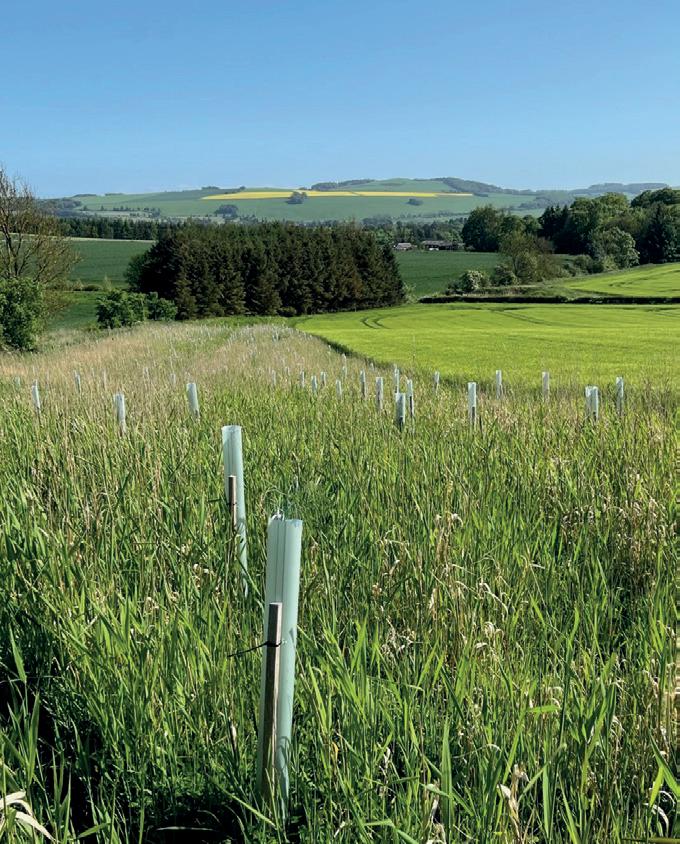
woodlandtrust.org.uk/plant
MOREwoods is funded by

Our varieties undergo 10 years of UK testing before 3 years of Animal and Plant Health Agency Variety trials for UK and Northern Ireland to confirm value for cultivation and use.
With more extreme weather and regional variation choose robust, resilient varieties for 2024 sowing. All varieties are rhizomania tolerant, and in addition Jackdaw is tolerant to Beet Cyst Nematode and Osprey to the more aggressive AYPR rhizomania. All are available with our own proven pellet technology and quality.
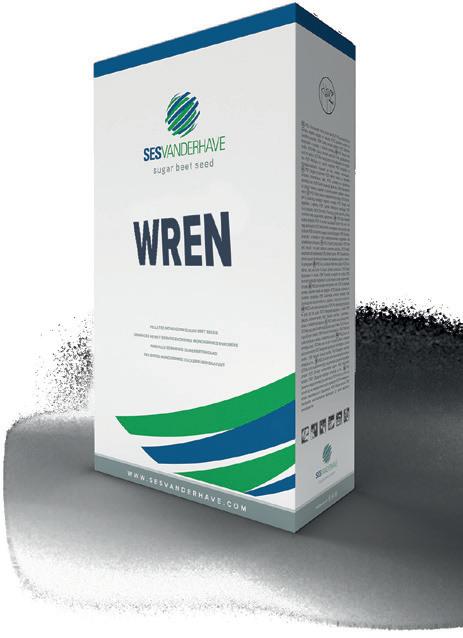


Wren, Adder, Osprey and Tawny are also on the BBRO Recommended List.
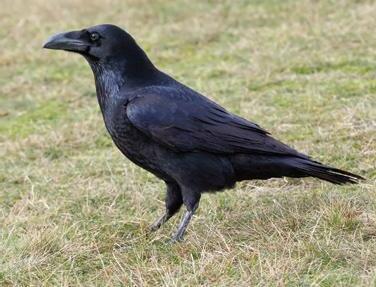





• Be alert for higher disease risk
• Keep close eye on beet crops
• Two-spray programme is best
Cool wet weather has seen sugar beet crops come under intense disease pressure, with rust infection the greatest concern for growers and agronomists.
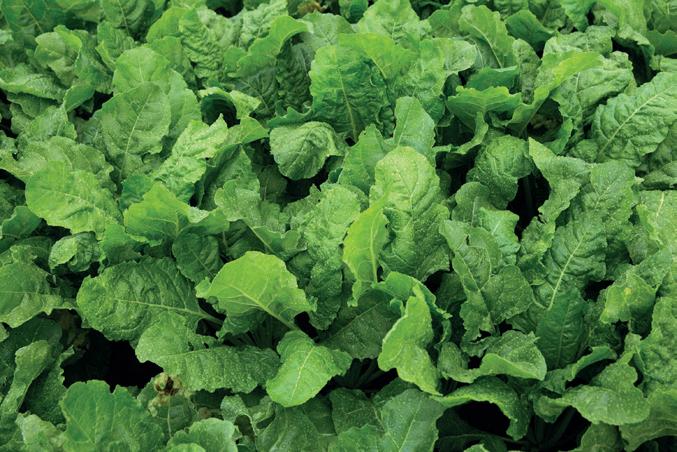
Protecting green leaf area in the coming weeks is a priority to enable plants to build yield – particularly af ter this season’s challenge of late establishment was followed by the effects of heat stress in June.
Cooler and wetter conditions in many areas over recent weeks have been especially favourable to rust development – and growers should keep a close eye on their beet crops, says Syngenta technical manager Andy Cunningham.
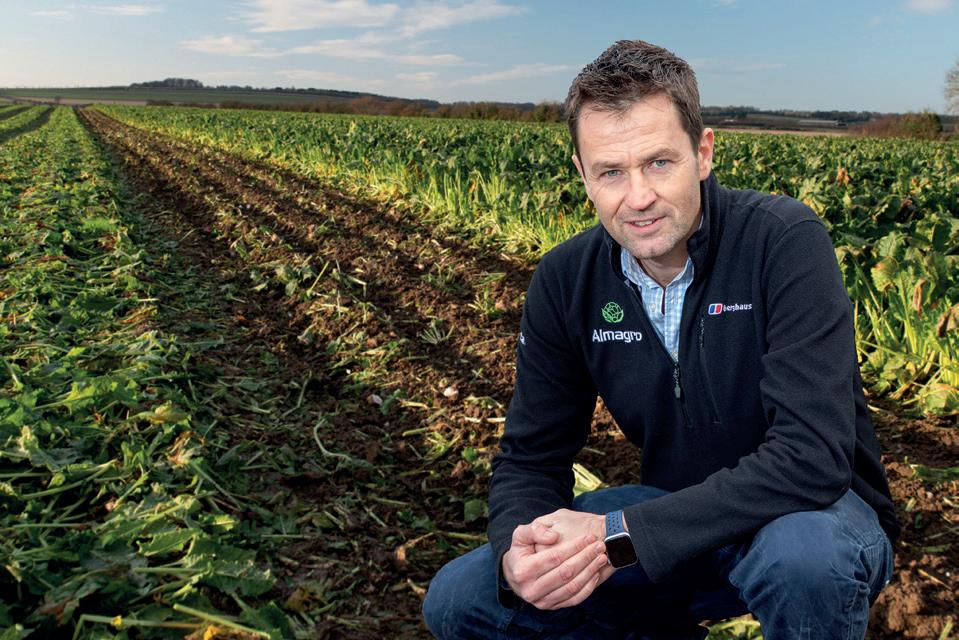
In similar high-pressure situations last year, trials in Lincolnshire found that a two-spray Priori Gold programme in August reduced the in fected leaf area from over 85% of the crop in untreated plots to just 19.8%.
Higher yields
Beet treated with Priori Gold – a co-formulation of azoxystrobin and difenoconazole – yielded an average 87t/ha, compared to under 75t/ha in untreated crops and 83t/ha in crops treated with either mefentrifluconazole + fluxapyroxad; or fluopyram + prothioconazole.
With a higher sugar content in Pri
ori Gold treated roots, the two-spray programme returned an extra margin worth £680/ha hectare over untreated crops, with other fungicide options generating a £312/ha or £260/ha return respectively.
“Priori Gold was clearly the best product for controlling rust in the trial. But other trials have repeatedly demonstrated its outstanding broadspectrum effects on other beet diseases – including ramularia, powdery mildew and cercospora too.”
Low cercospora risk Relatively cool conditions this season have been far less conducive to cercos-

Above left: Wet leaves from dew or irrigation are conducive to rust outbreaks
Above right: Untreadted rust infections can result in much lower yields
Below: Looking after the green leaf area is key, says Andy Cunningham
The overall efficacy is further bolstered by difenoconazole that is proven to protect against a broad disease spectrum.
“Together the two actives are incredibly powerful for beet disease control,” says Mr Cunningham. “Furthermore, it is a highly cost-effective option that can deliver higher margins for growers.”
Growers can make two applications of Priori Gold per crop at a rate of 1 litre/ha, with the latest time of application when roots have reached harvestable size (GS49) and not less than 35 days before harvest.

An increase in blackgrass on many farms this season has renewed interest in reducing the weed to manageable levels.
Blackgrass is estimated to cost growers some 800,000 tonnes of lost yield in the UK alone– with associated economic losses of about £400m, says Ruth Stanley, UK & Ireland country manager for Life Scientific.
“This summer has clearly highlighted the challenges of black-grass control as the weed has raised its ugly head with vengeance and a dark cloud of seed heads is seen above cereal crops across the country,” she says.
‘Enormous amount’
“Even farms with previously manageable levels of the weed saw a huge rise in plant numbers which in turn will generate an enormous amount of seed shed, ready to germinate this autumn should conditions allow.”
It takes just 13 blackgrass plants per square metre for a 5% yield reduction, according to estimates from the Agriculture and Horticulture Development Board. And with input costs
on the rise, it has seldom been more important to combat the weed.
to 20 heads – each containing more than 500 seeds. This makes it essential action is taken at the beginning of the season to minimise damage and stop the weed emerging in the crop during the following months.
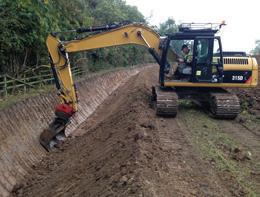
Early control and stacking actives is key, says Ms Stanley. Choosing quality products which can be used flexibly in the programme could tip the balance of blackgrass control back in the growers favour, she adds.
blackgrass


leaved weed herbicide manufactured by Life Scientific containing 400g/l flufenacet and 100g/l diflufenican in line with reference product Liberator. It can be used pre or post-emergence along with a sequence of alternative products containing different modes of action, such as Avadex or Luximo. Where Firestarter is applied twice in sequence and the total dose is 0.9 litres per hectare, the first application must be made before GS14 of the crop, leaving a minimum interval of six weeks between applications.






Celebrating 96 years in business 1924-2020
-

Push the button for more efficient weed control in sugar beet.
With only one application you need less time to manage weeds in your sugar beet and have more time for other crops. Get the power with CONVISO ® SMART sugar beet seeds from KWS and CONVISO ® ONE herbicide from Bayer.
www.kws.com














Switching from straight urea to fertiliser featuring urease inhibitors can boost productivity while reducing emissions – but management must be tweaked, say experts.
Farmers have a key role to play in complying with the government’s increasingly stringent rules regarding urea-based fertiliser – not only to reduce ammonia emissions but to maintain market access to what is an important crop nutrient.
Defra’s clean air strategy requires growers who spread urea fertilisers to use so-called protected products from 1 April next year (see box). These products are treated with a urease inhibitor to reduce ammonia volatilisation after spreading by upwards of 70%.
It is important to comply with the new rule because an outright ban on urea would be damaging, says Peter Scott (pictured right) technical director at Origin Fer tilisers. Besides, he adds, urease inhibited urea can offer perfor mance equivalent to ammonium nitrate (AN).
“Agriculture needs to main tain urea availability to offer alternatives for crop nutrition strategies. The industry has in troduced efficient protected urea fertilisers to reduce environmen tal losses and make more of the fertiliser we are applying.”
For growers looking at protected urea for the first time, there are two distinct types of urease in hibitors that function in differ ent ways. Farmers should ensure they purchase the most suitable product to make the most of the fertiliser they apply.
The most common type of in hibitor is phosphoric triamides. It is available in both solid and
Option 4 of Defra’s clean air strategy stipulates that farmers using urea fertilisers must commit to products containing a urease inhibitor.
The rule applies from next year for applications between 1 April and 1 September for arable growers; and between 1 April and 15 September for grassland producers. It applies to fertiliser containing 1% urea or above – including blends, not just straight urea.
Monitoring of Option 4 compliance will be through Red Tractor farm assurance scheme staring from next April. Compliance should be viewed as a cross-industry approach to reduce ammoniaemissions and avoid further restrictions on urea, say suppliers.

“As fertiliser prices have stabilised at more familiar levels, growers will be keen to secure supplies – so understanding the nuances of each inhibitor is essential before ordering,” says Peter Scott, technical director at Origin Fertilisers.

“By using a protected urea fertiliser, growers will be reducing losses and maximising any investment in fertiliser.”
Fertilisers as Origin Enhanced Nitrogen (OEN) and as a liquid from Agrii as Liqui-Safe.
Explaining the key differences between the inhibitors, Mr Scott says: “All phosphoric triamides use the same mode of action, forming an analogue of urease to block active sites, slowing urea hydrolysis, and reducing the risk of volatilisation.
significant reductions in greenhouse gas emissions during production, says Mr Scott.
In addition, Nutrisphere is dual acting because it is also a nitrification inhibitor – helping to reduce the risk of nitrates leaching into water by sequestering the catalysts for nitrifying bacteria.
liquid forms as NBPT (Sustain), NPBT/ NPPT (Limus) and 2-NPT (Alzon Neo-N).
The other type of inhibitor is a carboxylic carbohydrate, with Nutrisphere being the sole option for UK growers. It is available in granular form from Origin
“On the other hand, Nutrisphere is a combination of organic acids, which use a high cation exchange to temporarily sequester nickel in the soil, slowing down urea hydrolysis.”
Both offer similar performance to AN and there are fewer restrictions on the storage of urea-based fertilisers – and
One of the benefits of Nutrisphere is that it can be blended and stored with different nutrients – whereas phosphoric triamides have been proven to degrade when stored with phosphates, says Mr Scott.
This is due to the acidity of phosphate attacking the inhib-
Continued from previous page
itor and reducing its efficacy as a protected urea fertiliser. Con sequently, this has restricted op tions for growers looking to use urea NP and NPK fertilisers.
Mr Scott explains how Nutri sphere differs in this case.
“Nutrisphere has EC certi fication – and part of the trial work involved testing its com patibility when blended with phosphate. It showed there is no weakening of the inhibitor in this situation, with the Nu trisphere still as effective at ap plication.”

Fertiliser maker Yara has become the latest compa ny to join the Green Trac tor scheme to help farmers recy cle plastic waste.
The Green Tractor was es tablished in 2020 by agricul tural plastic recycling special ists who recognised the need to encourage more farmers to re cycle waste plastic.
The goal is to ensure all farm plastic is recycled by 2030 – pri marily through a network of in dependent waste plastic collec tors and more than 80 collection points which are dotted across the country.
Shared aim
Yara joins an increasing num ber of environmentally-focused companies that have joined the scheme with the same shared aim – to bring about positive change in the agricultural sector while helping the planet.
Yara sustainability manag er Mark Tucker said: “We joined the scheme to demonstrate a de sire to support rural recycling and promote trade within the farming community.
“Green Tractor helps us show we are a business taking a sustainable stance for agriculture to support the farming industry and circular economy.”
Omex Agriculture is to cease production of suspension fertilisers from 1 January 2024 – but it will be business as usual until this date, with autumn customers supplied in the usual manner.
Increasing risk management and the resulting business constraints along with compliance obligations in a changing regulatory landscape have made suspension fertilisers for Omex in the UK no longer viable.
All other product lines remain unaffected.
Instead, Omex will be nationally promoting the use of solution fertilisers from its new Multiflo range. This is formulated to provide farmers with a true compound fertiliser which contains the complete analysis required for each customer.
The new Multiflo programme offer a lower carbon footprint for crop production as well as increased nutrient use efficiency throughout the lifecycle of the crop, says Omex.


ready in the scheme.
“Green Tractor assures that farm plastic recycled through their network is to the highest
credited, and dealt with correctly and due diligence is performed to ensure farm plastic is recycled and repurposed.”
says David
of Omex.


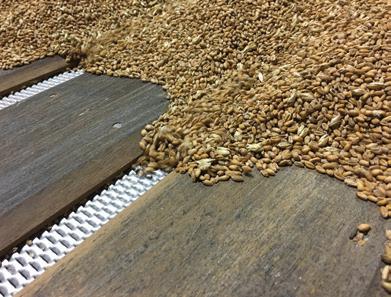




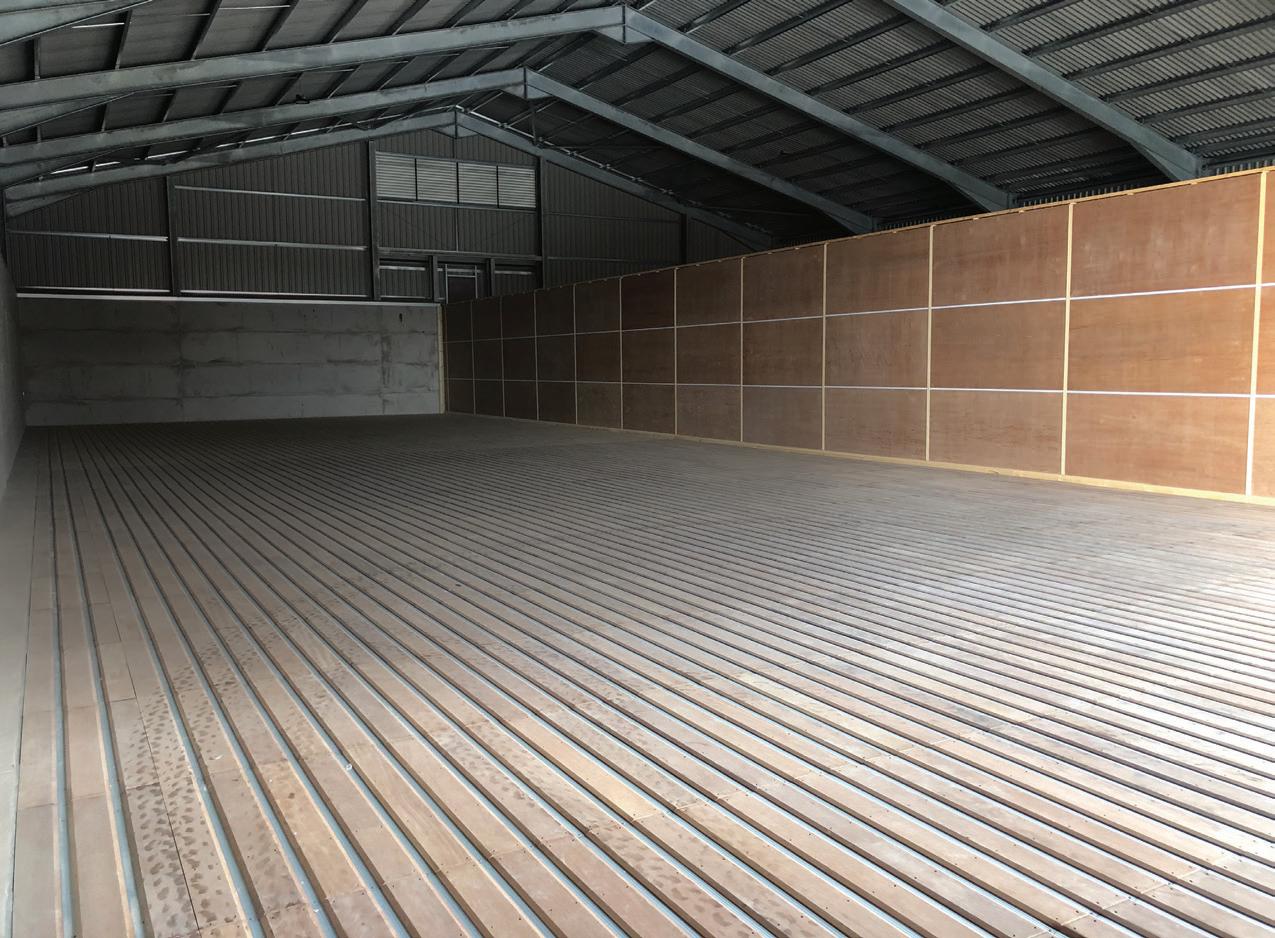
Flach
Email:
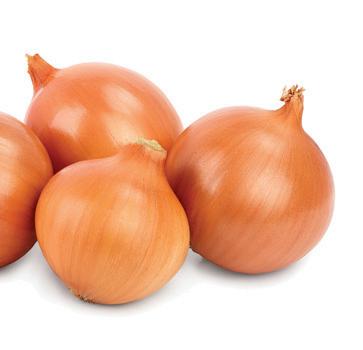
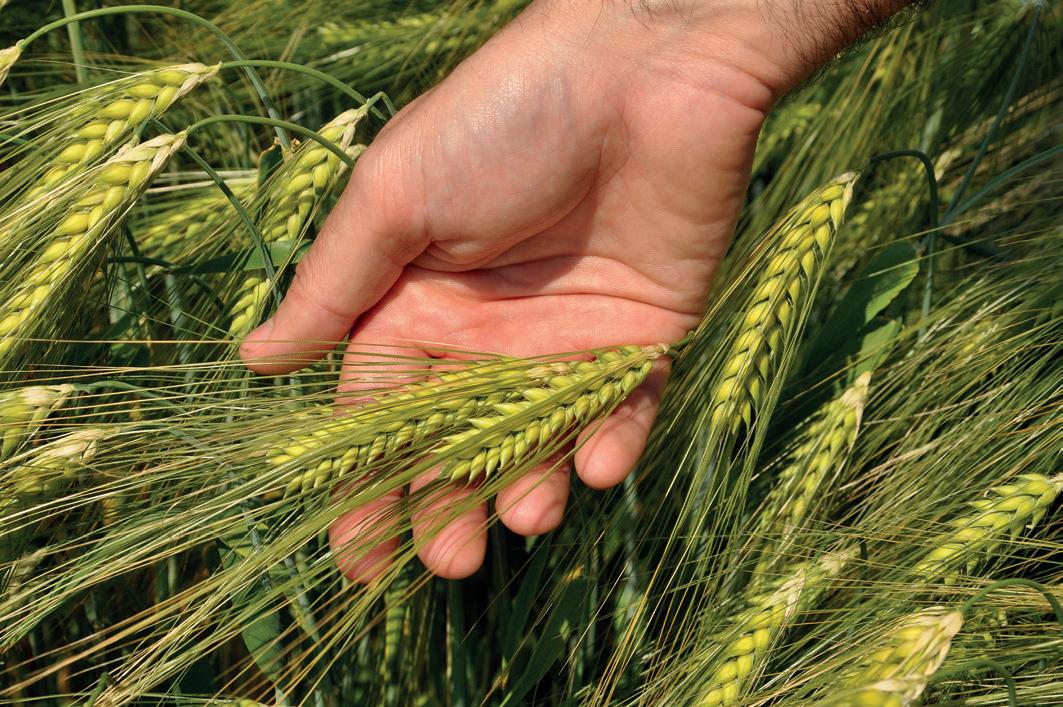
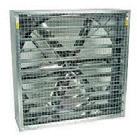







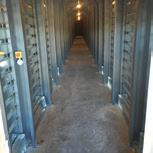
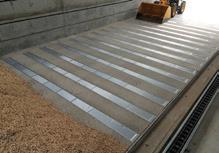
wo hybrid winter feed barley varieties with enhanced protection against two key cereal diseases have been launched by Syngenta for planting this autumn.
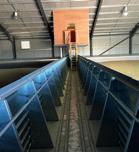
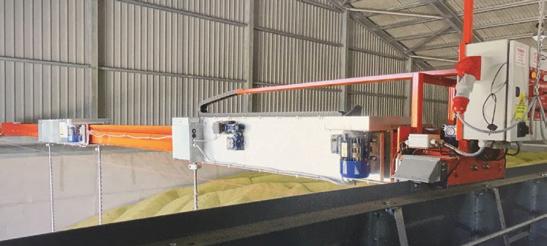
With a UK treated yield of 105%, SY Nephin scores 8 out of 9 for rhynchosporium resistance – the highest rating for winter barley on the Agriculture and Horticulture Development Board Recommended List for 2023-24.

Stablemate SY Buzzard has a treated yield of 104% on the AHDB winter barley Candidate List. It is the first Syngenta hybrid barley with tolerance to bar-
ley yellow dwarf virus (BYDV), says Syngenta seeds technical expert Ben Urquhart (pictured left)

“Rhynchosporium is the number one damaging fungal disease of winter barley, causing yield losses of over 1.5 t/ha as well as having the potential to impact grain quality,” says Mr Urquhart. “BYDV, which is transmitted by aphids, can cause winter barley yield losses of up to 50%.

“Both SY Nephin and SY Buzzard provide the hybrid vigour benefit of hybrid barley – which is associated with high and stable yields, vigorous rooting and competitive growth against a range of grass weeds. But they also bring other benefits.”

As well as scoring 8 against rhynchosporium, SY Nephin had a high untreated yield of 90% of treated controls on the recommended list – as well as a high specific weight of 71.4 kg/hl and resistance to barley yellow mosa-
“Strong rhynchosporium resistance offers growers potential breathing space if fungicide sprays are una-
SY Nephin has also shown good rooting – and produced superior crop establishment to a conventional sixrow winter barley after both no-till and deep-till cultivations. Relatively short-strawed compared to other hybrid varieties, it looks straightfor-
Mr Urquhart says growers should consider SY Buzzard in areas at higher BYDV risk; in fields where delaying drilling to reduce aphid numbers is not possible; and on farms seeking the £45/ha Sustainable Farming Incentive payment by growing the crop
“Growing a BYDV tolerant barley is an important part of an overall strat-

The tough grain cooling pedestal

• A vertically standing, crop cooling and conditioning system.
• Draws heat out of floor stored crops, helping to maintain crop quality and price.

• Cost effective and flexible solution that ensures crops stay free from moulds and insects.

Stronger by Design
• Recommended for small seeds like Oil Seed Rape.
• No need to have an additional filter for small seeds.
• Louvred slots are less likely to block so equal air distribution is maintained through the crop.
egy to manage BYDV risk. In Syngenta trial plots inoculated with BYDVinfected aphids to create high disease pressure, SY Buzzard showed only mild virus symptoms and suffered minimal yield loss.
Other agronomic benefits include rhynchosporium and net blotch resistance ratings of 7 and 6 respectively on the AHDB Candidate List, resistance to BaYMV nd low levels of lodging and brackling.
“SY Buzzard has performed particularly well in the eastern region,” says Mr Urquhart.
For this autumn, while SY Nephin seed will be widely available. But SY Buzzard is in limited supply. That said, its launch marks the start of a pipeline of Syngenta hybrid barley varities with BYDV tolerance.
“Ever since we launched hybrid barley we have been improving the crop’s agronomic characteristics,” says Mr Urquhart.
“As well as improved disease tolerance, a big success has come from breeding hybrid barley with higher specific weights. Around one in three winter feed barley fields are now planted with a hybrid.”
• British Manufactured, built to last.
- Cast Aluminium Case
- Pressed Steel Impeller

- Thermal Overload
- Class leading air flow

• Our fans used on UK farms for over 50 years.
• Used in grain stores worldwide.
• Problem weed now in more fields
• Herbicide resistance is challenge
• Range of options required to win
Cereal growers are being reminded to use a selection of herbicide active ingredients when tackling brome this autumn.
Although classified as a competitive weed, brome has until now been largely confined to field margins, with any seeds that migrated into fields prevented from germinating by the burying action of ploughing.
So far, so good. But the increasing popularity of min-till and no-till establishment as a cheaper and more soil-friendly alternative to ploughing has resulted in more brome in cereals and oilseed rape. This poses a significant threat to crop viability.
A vigorous growth habit means just five brome plants per square metre can cause a 5% yield loss in cereals – similar to blackgrass and ryegrass. A nd herbicide resistance means a range of options should be considered when tackling the weed.

Full control
A robust sequence of pre- and postemergence sprays is needed to ensure adequate levels of control are achieved, says herbicide expert Bill Lankford, of Adama UK. A range of active ingredients and timings is required to provide full control of the UK’s five main brome species, he adds.

Independent trials carried out by Adas suggest the efficacy of Tow er (40 g/l diflufenican, 300 g/l pendimethalin and 250 g/l chlorotoluron) varies ac cording to target species and timing of application, with each species of brome responding differently, says Dr Lankford.
Herbicide Tower is not only effective against troublesome annual meadow grass and broad-leaved weeds, but also offers useful activity against sterile, meadow and
ryegrass and groundsel control programmes.”.
“Instead of a ‘carte blanche’ or farmwide approach to brome control, growers must understand exactly which species they are tackling before tailoring their weed control programme to match the growth stage of crops and germination phase of weeds on a fieldby-field basis.”
Rye and sterile brome are most susceptible to Tower when applied at preor early post-emergence (GS11-13) timings, suggest the Adas findings. But meadow brome is only susceptible when applied with diflufenican at preemergence, or with prosulfocarb from pre-emergence to tillering.
The addition of prosulfocarb was also shown to improve control at all timings for all species of brome.
This all means growers and agronomists should no longer rely solely on post-emergence ALS treatments to clean-up crops in the spring. Instead, they should also use early post-emergence treatments to extend the residual life of pre-emergence sprays.
“The trials indicate a clear difference in the performance of different active ingredients when applied to
Above: Brome is becoming more of a challenge in cereals and oilseed rape
Below: Different types of brome need different approaches, says Bill Lankford
with sufficient moisture. But these conditions are not the same as those found in field situations.
“Practical brome control programmes therefore need to consider the biology of the field population and the sensitivity of that population to herbicides, particularly ALS inhibitors to which there is already some known resistance.”
Additional trial work has also shown that Falcon (100g/l propaquizafop) provides excellent protection against four of the brome species, giving a 9298% reduction in target populations of ALS resistant barren, great, meadow and rye brome.
“Falcon is the leading herbicide for the control of volunteer cereals in broad-leaved crops – and it can also be used as part of an integrated pest approach for brome reduction in winter oilseed rape and other broad-leaved crops,” says Dr Lankford.
“We also found that cycloxidim works well to control ALS-resistant brome species in oilseed rape, with an application of Falcon to control volunteer cereals and a subsequent treatment using cycloxydim to tackle later emerging grassweeds [including brome] throughout the autumn.
“This gives oilseed rape growers the option to target subsequent flushes of brome with different active ingredients than those used in their autumn cereal herbicide stack.”
A field-byfield strategy is vital


Bath & West Showground on 21-22 September
Tickets are selling fast for this au tumn's Confor Woodland Show – a two-day extravaganza for the forest ry and timber industry, including the latest innovations in machinery and opportunities for business growth.

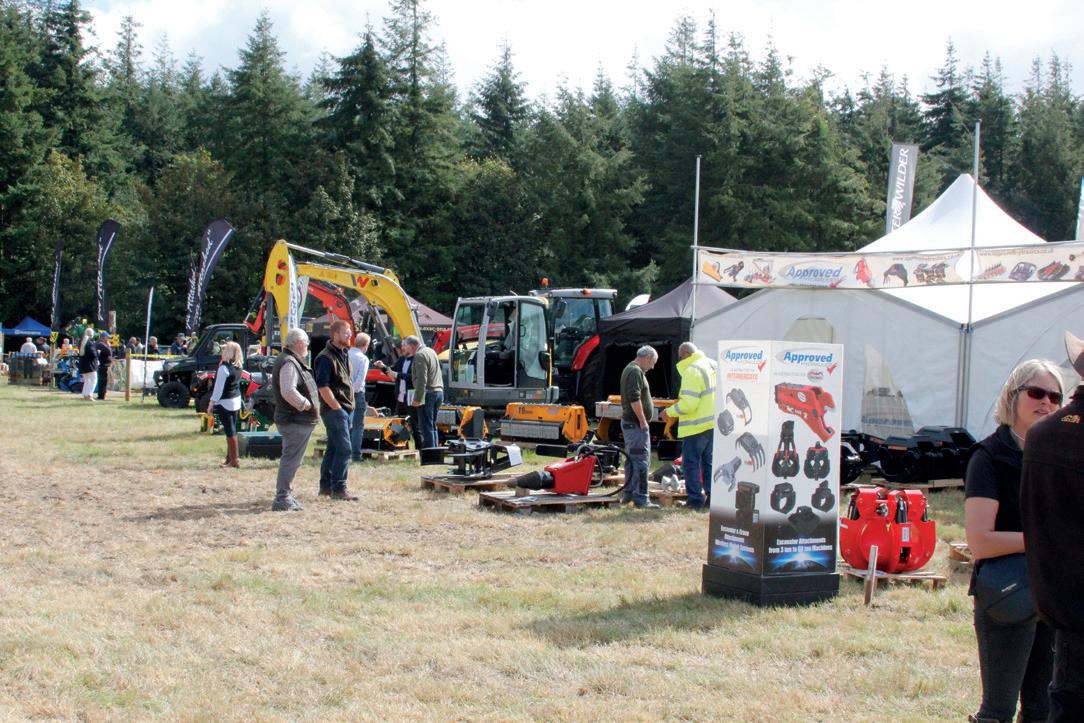
The show is the place for everyone inter ested in trees and wood to hear about the lat est products and services, receive practical advice, network with peers – while enjoying the demonstrations and seminars.
Held this year at the Bath & West Showground on 21-22 September, the event promises a valuable snapshot of the industry, whether you’re a part of it already or are looking to find out more.
The show's central hub will be the Confor tent, bringing together big names and influencers to discuss topics like agroforestry, bioplastics, trends in the forestry marketplace and woodland management.
This year’s speaker lineup includes representatives from Defra, Forest Research, FSC UK, Rainbow Professional, CSX Carbon and more.
Confor technical and industry support manager Richard Hunter said: “After a four-year break, it’s great to have the Confor Woodland Show retaking its place in the sector’s calendar.
ground, we hope colleagues from across the industry will agree the show has returned bigger and better than before.”
come faces old and new to the show in Sep tember, said Mr Hunter.
sors and exhibitors for making our pro gramme of discussions, panels and demon strations possible.
forestry in the UK. The benefits that wood lands, forestry and timber can provide for the economy, for rural communities, and
for the mitigation of climate change present unique challenges opportunities for the sector. Bringing leaders in the industry together to share knowledge and ideas is now more important than ever.”
Visitors can expect to see machine demonstrations, chainsaw carving and archery showcases and enjoy the food and drink.
Additionally, the Forest Workers Zone will be a key feature of the Confor Woodland Show this year, acting as a 'one stop' hive of activity for people working in the practical side of the industry to come for information, advice and networking.

Experts will be holding practical demonstrations on skills such as chainsaw maintenance and tips for safe use, as well as being on hand to answer your questions or discuss any issues you are facing.
Single and two-day tickets can now be purchased online. Bookings made before the event will cost less than tickets purchased at the gate and special discounts are available for students and Confor members.
Mark Weatherhead Ltd


Telephone: 01954 210 355
Mobile: 07885 202 005
Hardwick, Cambs CB23 7QL

Agricultural & Plant Contractors
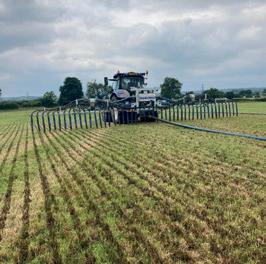

Oak House, Harby Lane, Colston Bassett, Notts, NG12 3FL
Steel Portal Framed
Grain Drying and Storage

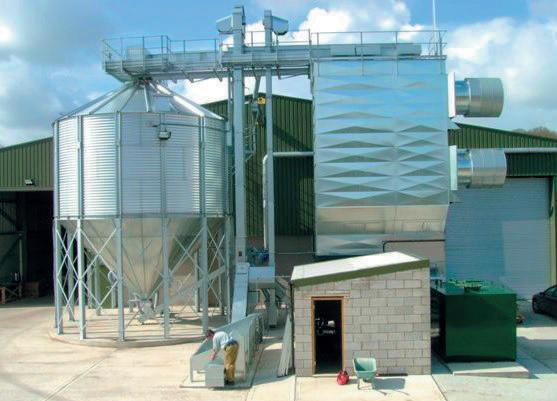
Now able to offer accurate spread up to 24 metre!
Ground works and Drainage
AN EXPERIENCED, RELIABLE & DEDICATED FAMILY RUN TEAM
Tel: 01949 860288 Mick: 07971 022867

Sam: 07816 917897 E: faulksandson@gmail.com
Electrical Engineering Royston
• Grain drying and storage
• Groundworks and drainage
• Electrical engineering works
• Elevator/conveyor repairs
Farmers will find it easier to secure funding from Defra’s revised Sustainable Farming Incentive – but three soil standard options have been dropped.
One of three components of the Environmental Land Management Scheme (ELMS), the SFI pays farmers to adopt and maintain sustainable farming practices which protect and improve the environment.
Revised scheme
Defra recently revised the scheme to attract more farmers. The 2023 SFI is expected to open for applications this month. The older 2022 SFI has been closed and with farmers given the option to join the new scheme.
Commenting on the changes, Savills farm consultant Matt Riddington (pictured) said: “One of the most important changes to the SFI is the structure itself.
“The 2022 SFI employed ‘standards’ – introductory and intermediate levels – which resulted in differing rates of pay. However, the 2023 SFI moves away from the ‘stacking’ idea of standards and instead adopts a ‘pick and mix’ system.”
The 2023 SFI comprises 23 actions
which look very similar to the wellknown structure of the Countryside Stewardship Scheme. The revised structure is more flexible, especial ly where basic options can be layered alongside other schemes.
“Pick and mix options can be add ed where the generation of further income is required, which means the new system can be more tailored and accommodating of individual farm needs,” says Mr Riddington.
“Overall, these latest changes will provide a profitable alternative on farmland areas where food production is no longer viable, whilst on produc tive land the incentive offers a sup plementary income which encourages sustainable food production.”
Under the new SFI system, each action group has been split into three independent elements: plans, plots and prescriptions.
The ‘plans’ tier largely mirrors standard compliance under a typical Red Tractor farm assurance agreement. These actions intend to build upon existing regulations and go beyond the regulatory legal minimum or baseline across the country.
The SFI actions for soils are focused on improving soil health, soil structure, organic matter and biology.
SAM1: Assess soil, produce a soil management plan and test soil organic matter (£5.80/ha and £95 per SFI agreement per year)
This action aims to ensure farmers understand the condition of their soil and effectively plan how to increase the long-term health, productivity and resilience of soil
SAM2: Multi-species winter cover crops (£129/ha per year)
This action aims to ensure a well-established multi-species cover crop over the winter months. The purpose is to protect the soil surface, provide root growth that benefits soil structure, support soil biology and minimise leaching, soil erosion and runoff.
SAM3: Herbal leys (£382/ha per year)
This action aims to provide varied root structures. This purpose of this is to help improve and maintain the soil’s structure, carbon, biology and fertility.
Defra says these actions can help with the long-term productivity and resilience of the soil to benefit food production. They can also provide environmental benefits, such as better water quality, improved climate resilience and increased biodiversity.

ther per year or per agreement – and will apply to the whole holding.
The ‘plots’ option will mirror CSS options for environmental crops – including pollen and nectar flower mixes and buffer strips. This aims to mitigate the loss of the basic payment scheme which has removed an incentive to leave field headlands for nature.
The ‘prescriptions’ option provides an opportunity to modify crop growing techniques on a rotational basis in order to enhance environmental benefits – such as intercropping, no-till and cover crops.
This will be accessible through integrated pest management, nutrient management and arable break cropping – all regenerative farming techniques which can help encourage better soil health.
Further changes to the original SFI scheme include an option for single entity SFI applications for common land and shared grazing agreements. Similarly, tenant farmers will be able to enrol in shorter agreements which do not require landlord consent.
Three options from the SFI 2022 soil standards have been dropped. The removed options are: adding organic matter, single species winter cover and minimising bare ground.
it wants to encourage more sustainable farming practices
This offers a profitable alternative
“
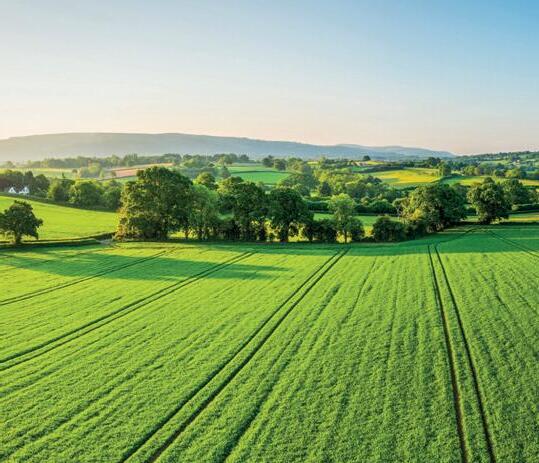




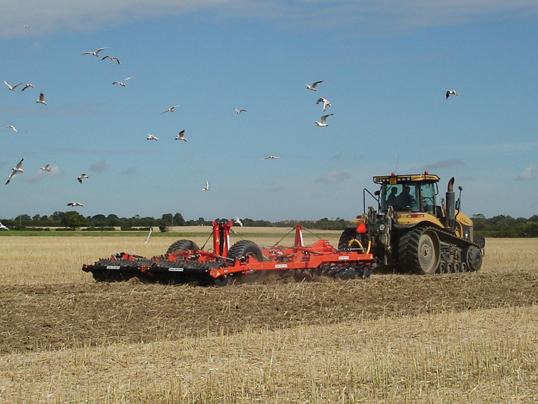

Growers looking to get more out of their soils and improve productivity should start with a field-by-field nutrient analysis, say experts.
Soil testing and tissue analysis of growing crops and harvested grain can improve soil health, optimise nitrogen use and deliver greater long-term sustainability, says Allison Grundy, agronomy manager with independent specialists NRM.

“Detailed soil nutrient analysis, including an assessment of spring nitrogen, should be carried out every year if growers are to use nitrogen and other key nutrients such as phosphate, potash and magnesium, as efficiently as possible.”
“Calculating optimal nitrogen applications means estimating the soil nitrogen supply as accurately as possible alongside a realistic target yield.”
Over-estimating yield by 1t/ ha when calculating nitrogen requirements, for example, could result in applying 25kgN/ha more than is necessary.
“A key aim should be to make the best sustainable use of the resources nature provides before nitrogen is applied. If we are to get fertiliser applications as low as feasible, all factors t have to be considered.
When it comes to soil carbon, NRM’s CarbonCheck soil carbon test kit is increasingly in demand, say Ms Grundy.
“Knowing soil carbon content is essential for the Sustainable Farm Incentive (SFI) applications, but that is only part of the story.”
Soil carbon content links the physical, chemical and biological processes in the soil, which is why it is so important in the improvement of Nitrogen Utilisation Efficiency (NUE) and better uptake of other key nutrients such as phosphate, potash and magnesium.
tion and healthier soil biology with carbon driving the overall functionality of the soil.
“In fact, there’s a direct relationship between soil carbon content and productivity so it’s an essential element in understanding soils better and improving their long-term resilience.”

Knowledge gained from soil nitrogen and carbon testing can then be further enhanced by taking tissue samples in the growing crop around growth stage 30-31, says Ms Grundy.
“Our CropCheck analysis is a growth-stage critical test that gives you an accurate insight into what is happening in the crop.
“If, for example, some indices are sub-optimal, growers can do something about them before it is too late and they start affecting crops yields and quality.
“Adverse weather and crop conditions between the initial soil nutrient testing at the start of the year and the rapid growth phase in the spring can change predictions of crop nutrient requirements significantly.
“But there all manner of soil biology and nutrient interactions that can also affect how well the crop is taking up nutrients and you will only know this if you have a good insight into what is happening in the plant.”
tent of grain after harvest, explains Ms Grundy.
“This is another good indicator of the crop’s ability to extract nutrients from the soil and if levels are low it can point to problems not just with nutrient applications but also field conditions and soil structure.
“If the soil is too compacted, for example, root development is adversely affected, biological activity is reduced and nutrient uptake, especially phosphate, is restricted. If soil pH has dropped too far, it will also reduce the availability of key major nutrients apart from trace elements such as manganese.”
Grain nitrogen content can also provide a good indication of likely fertiliser requirements for the following year.
“Weather and soil conditions over the following winter months will impact again on the availability of soil nutrients the following spring but grain analysis can give a valuable early warning of any looming issues that need to be addressed.
“The actual soil nitrogen supply (SNS) will then be ascertained with N-Check analysis the following Spring and the cycle begins again.
“A good soil structure is vital, so plant roots can scavenge for soil nutrients.” the soil, says Allison Grundy
NRM’s GrainCheck is the final test of the growing year and is used to check the nutrient con-
“Ultimately it’s about managing soil to the yield potential it can deliver year-in year-out without completely battering the resources available on the farm.”
• Tests boost soil health and sustainability
• Role of soil carbon increasingly important
• Greater insight boosts natural resources
Aswitch to direct drilling could help arable farmers improve soil health and business performance, suggests a study.
Average net profits rose by 15% under a direct drill system rather than full cultivation, according to the fiveyear study described as the UK’s most comprehensive trial of crop establishment systems through a whole farm rotation.
Researchers also found that more ecological and environmental benefits were delivered by the direct drill system rather than the plough and drill.

Led by the Game & Wildlife Conservation Trust (GWCT) and Syngenta, the study was supported by NIAB monitoring and data analysis..
It examined a full arable rotation on contrasting commercial farms at Loddington in Leicestershire and Lenham in Kent. Farms involved represented a spectrum of heavy to light land.
Belinda Bailey, of Syngenta UK, said the study provided rigorous sci-
entific insight into the implications of adopting direct drill establishment. Researchers set out with no pre-conceived illusions as to which system would prove most effective, or a panacea for all situations, she added.
“It has highlighted some of the potential pitfalls and the seasonal challenges across the different soil types and volatile market conditions. Overall, it has shown a no-till system can of fer a more sustainable option for ar able businesses in most situations.”
Results found that yields of cere als, beans and oilseed rape yields were the same as with full cultivation es tablishment on the light land,. But yields were 7% lower on heavier soils in Leicestershire.
That said, the overall gross margin was better with the direct drill due to a 45% reduction in fuel use on both sites, combined with an 11% reduc tion in operating costs on heavy land and 7% lower on light land.
This gave a 14% and 16% improve
ment in net profit on the heavy soil and light land respectively over the five years. There was also a 50% improvement in work rate across both sites with direct drill establishment.
“That could give greater flexibility and resilience to increasing challenges of timely establishment in difficult weather conditions.”
“Improved work rate could also give some growers the opportunity to increase farmed area and spread costs further, or with the current high capital cost of machinery to explore opportunities to downsize their equipment and reduce soil impacts,” explained Ms Bailey.
A reduction in fuel use and operational costs by adopting a direct drill system was a key driver in achieving a 9% reduction in carbon footprint.
This was through reduced cultivations on the light land soils, along with a 4% reduction on heavy land.
Belinda Bailey demonstrates green cover for soil enhancement
Below: A Dale drill used in conservation agriculture establishment trials
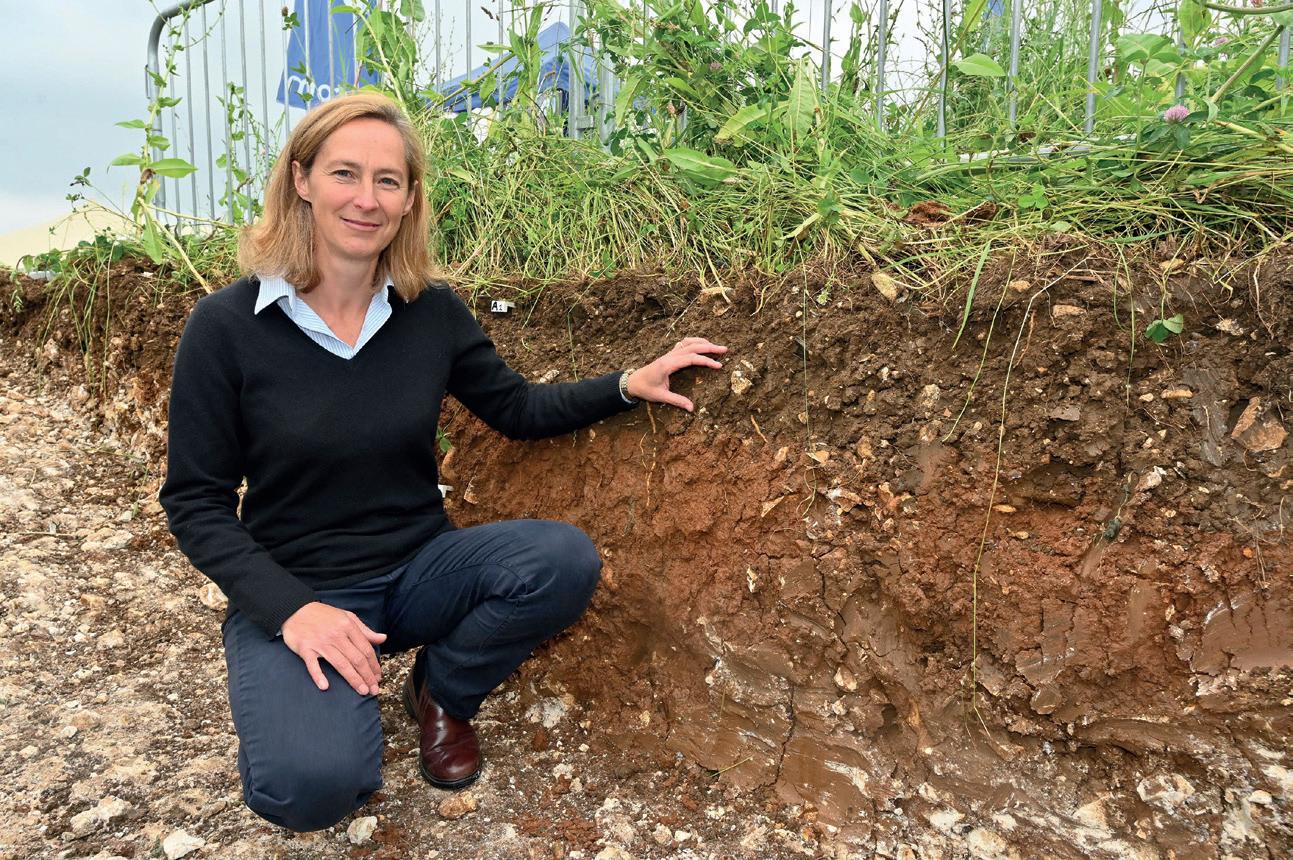
No-till can offer a more sustainable option
Designed to ensure unmatched plant establishment, Simtech drills come in 3 ranges:

• MECHANICAL
• PNEUMATIC
• GRASS
The inverted T-slot technology allows unique and consistent seed placement.


Suitable for any surface, soil type and all climatic conditions.


PAS100 compost soil improver supplied direct from our composting site in Kilsby. For use as a soil conditioner on arable land or in horticulture and viticulture.



l Cost effective fertiliser option
l Rejuvenates tired soil
l Provides slow release major & micro nutrients

l Improves soil structure & rooting potential
l Increases moisture retention & soil drainage
l Good source of organic matter
For prices call the team at our Kilsby site on 01487 849840 or email enquiries@envar.co.uk
envar.co.uk
SIMPLE. RELIABLE. AFFORDABLE
Direct drills for improved soil health and reduced input costs

Spalding, PE11 3QN
Tel: 01775 513 112 www.simtechuk.com

Soil scientists also assessed an 8% reduction in soil greenhouse gas emissions on the heavy land and a 5% reduction on light land, compared to crops established with full cultivations.

The study showed no increase in soil emissions of nitrous oxide (NO2) under direct drilling. This had been a concern because compacted soil conditions can give rise to elevated levels of what is a serious greenhouse gas.






Soil structure remained excellent throughout the direct drill establishment rotation, the study found.








There was a 10% improvement on the light land, compared to repeated cultivations and no significant impact on the heavy land over the course of the five years.






















“Elevated organic matter levels seen with direct drill establishment over a longer term trial at Loddington, or where rotational ploughing may be utilised for grass weed control within a direct drill system, could alleviate any potential for compaction on heavy land,” said Ms Bailey.







The trial also identified 112% more earthworms on light land and 13% in
the heavy soils under the direct drill system, she addded.
Soil nutrient sampling showed no significant differences between the establishment systems for nitrogen, phosphate and potash or magnesium levels on either site over the five years. But they did highlight some seasonal variability, particularly in nitrogen and potash.
Bird sightings – a further indicator of farm biodiversity – were significantly higher across the direct drilled areas throughout the rotation.
Bird recordings were notably elevated for skylarks, meadow pipit and thrush species in the period of the study, primarily due to increased ground cover and available surface food sources. “Direct drill establishment offers significant advantages,” said Ms Bailey.
“The results positively demonstrate that as more growers make a transition towards direct drill or light till establishment systems there are clear advantages for the economic and ecological sustainability of the farm finances and biodiversity.”














































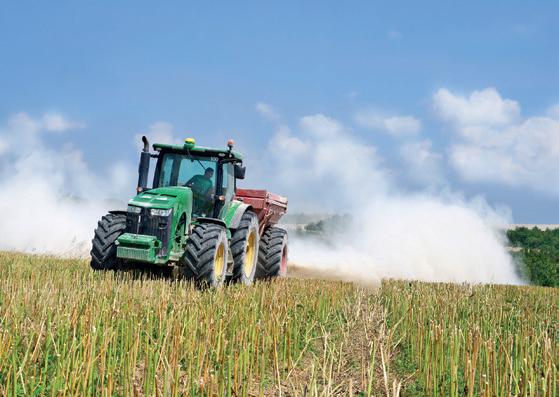
Direct drilling aligns well with the government’s new Sustainable Farming Incentive (SFI), which rewards farmers who look after the environment while producing food. Joe Stanley head of partnerships at the Game and Wildlife Conservation Trust, which hosted one of the trials at its Loddington farm in Leicestershire. There were advantages in the direct drill system in terms of integrated farm management practices, he said.
this long-term research project. These findings underscore the immense potential of Conservation Agriculture, and consequently Regenerative Agriculture.
while keeping other inputs constant, we can achieve substantial cost savings in both time and money. Simultaneously, it can enhance profitability, contribute to environmental stewardship, and mitigate climate change.


“We are pleased to be continuing this work with Syngenta as we progress to a second, more ‘regenerative’ phase over the coming years, as we look to build on the solid data and foundations already built.”
The Syngenta Conservation Agriculture & Sustainable Farming Systems project is a long-term pan-European research initiative.


Book in advance online and get exclusive discounts on your tickets
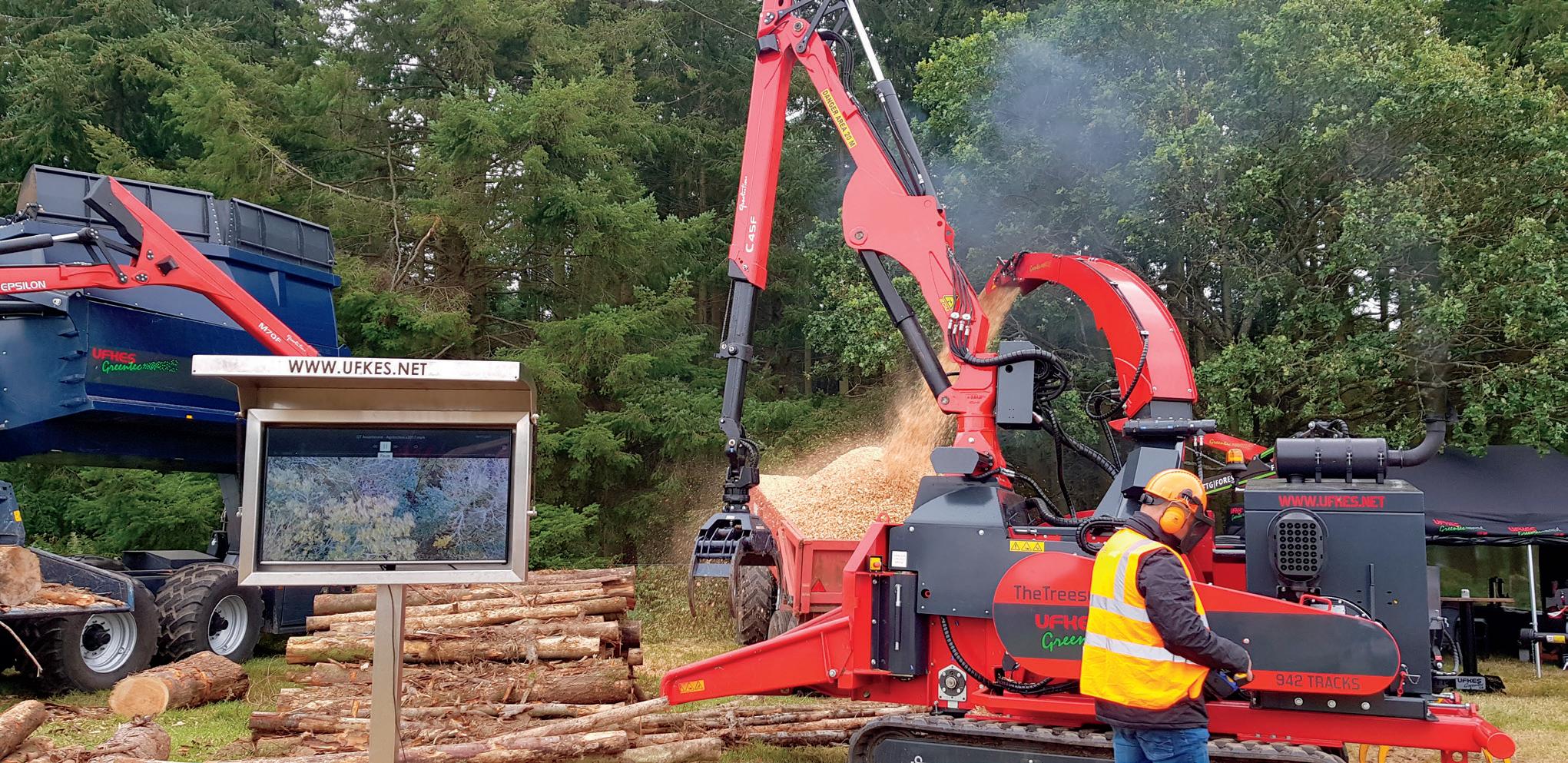
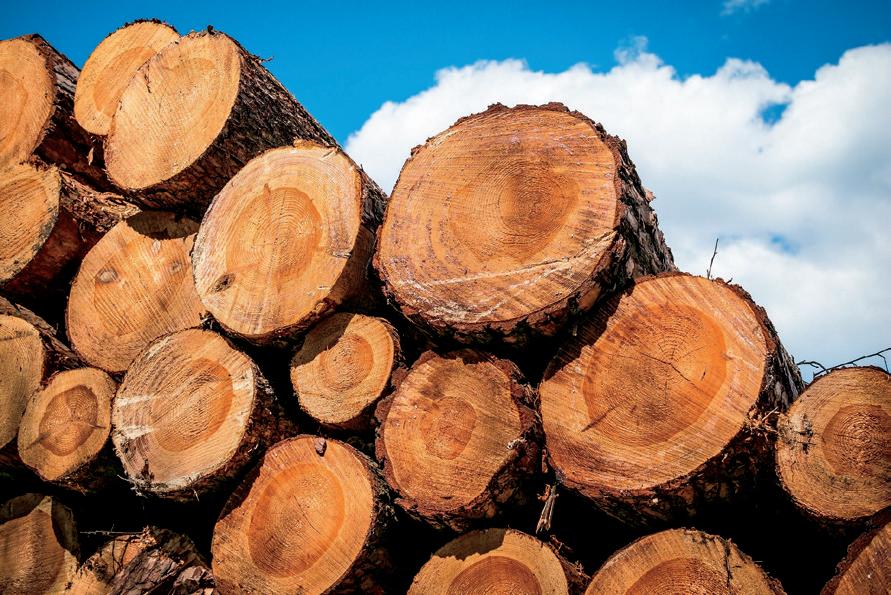
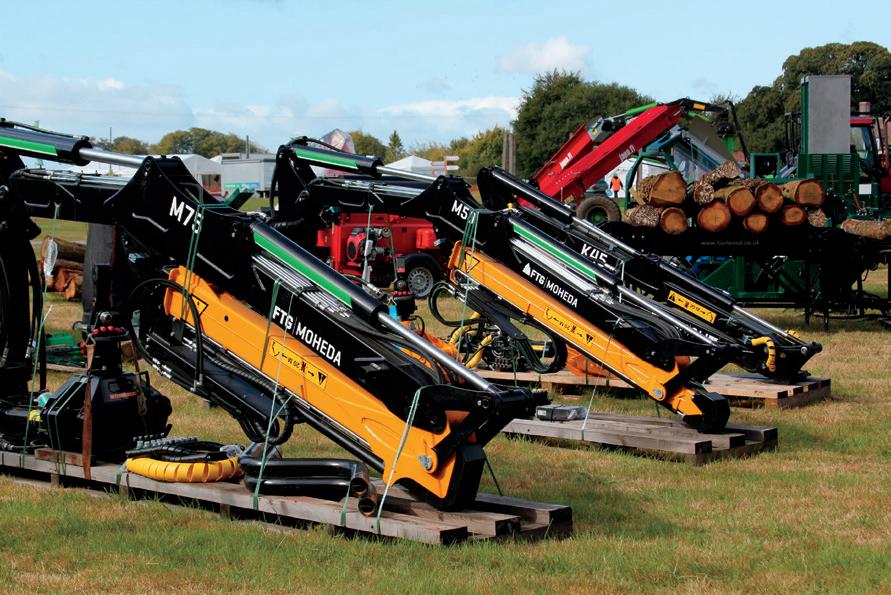

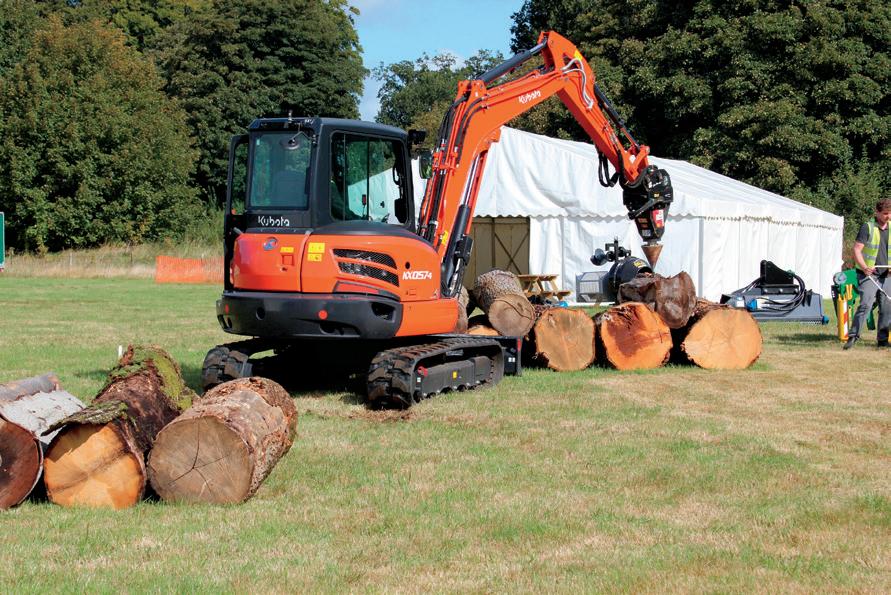




Twin hold roll pin blade removal system and backward leaning air borne upper blade for trash lift and ease of trash flow
Seed depth tail 40mm deep holding the seed at correct depth and placing seed on either side of seed terrace
for exacting maximum returns from SFI without losing crop output
SOIL SURFACE
Triton launched its unique deep soil engagement direct drill in 2018 to give plough based yields from direct drilling. 6 years later we are consistently achieving higher yields from the Triton than from ploughed trials on our own land. The Triton is the only all weather seed drill on the market that gives the flexibility to grow maximum profit autumn sown crops whilst reducing blackgrass from late drilling... several manufacturers are now also claiming all weather capability... if these are false claims then the farmer’s new approach will be thwarted.


Downward facing upper blade does not hook grass weed seed up from below stale seed bed and field surface
Triangular tungsten tiles for reduced draught and soil disturbance
draught and soil disturbance
SOIL SURFACE
Drilling at 40mm depth
Downward facing upper blade holds field surface in place minimising soil eruption in the stale seed bed
Drilling at 40mm
Downward facing upper blade surface in place minimising soil eruption in the stale seed bed
14cm deep
lower blade takes blade deep below ground for air drainage and rooting
Buying a blade drill is now an open and shut case. Why? Because only the Triton drill has a slot closer
lower blade takes blade deep below ground for air drainage and rooting
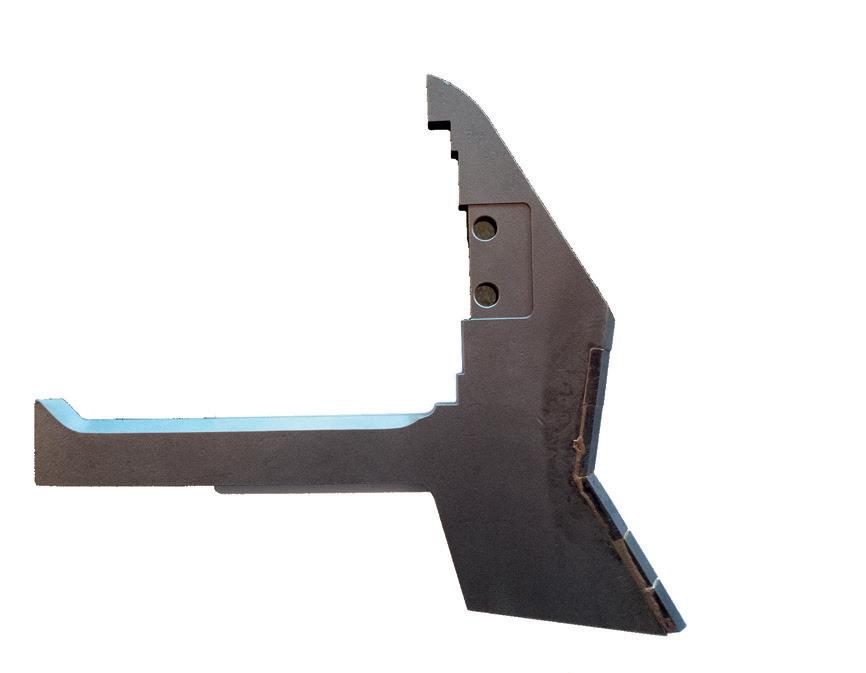
The ‘must have’ seed drill
More than 6,500 visitors flocked to this summer’s Groundswell show – the eighth annual regenerative agriculture event and festival in Hertfordshire.


Hosted by the Cherry family at Lannock Manor Farm, near Hitchin, the two-day festival on 28-29 June involved more than 200 speakers from across the world. They included technical experts, regenerative farmers, researchers, politicians, retailers and environmentalists.
Event director Alex Cherry said: “It’s been a monumental eighth Groundswell, welcoming old friends and new faces, and catching up with people about their evolving farms and projects, some of which were initiated at Groundswell.
“When we first launched Groundswell, just 400 people joined us. Today thousands travel from across the world to look at how we can continue to develop and advance sustainable agriculture, improving our soils and enhancing our food production.
“It is really humbling that, together, we can create stimulating conversations that generate positive change.”
This year’s Groundswell theme addressed the question “What is regenerative agriculture?” Visitors and speakers came together to discuss the theoretical and practical applications of agroecology – and its role in mitigating climate change.
To ensure topics were accessible to everyone, sessions ranged from first principles for those considering a switch to regenerative farming methods, through to advanced sessions looking at integrated pest and disease management.
Across the site, demonstrations and crop plots illustrated the work of exhibitors, including herbal leys and cover cropping, direct drilling, mob grazing, composting and tree management – showing visitors how to integrate different practices into their own farming system.
Visitors included Sophie, Duchess of Edinburgh; and Defra environment secretary Thérèse Coffey. Both were given a tour of the site to understand more about the transition towards re generative agriculture and the chal lenges facing the farming sector.
Independent plant and soil consult ant Joel Williams opened the event. “The term “regenerative” was still an open definition, allowing more people to connect with the concept of agroe
cology and conservation agriculture, he saud.
“We are still learning and developing the concept but it all stems from soil regeneration, and whilst we often talk about it as an emerging topic, regenerative agriculture is something many are rediscovering, rather than something new on-farm.
“It goes beyond the soil, and is also about regenerating our people, restoring the connections in our communities. That is why, for me, events on on-farm and peer-to-peer learning in the field, is key to generating action.”
Other speakers included biologist, Anne Biklé who explained the role of pasture-fed livestock for the health of humans. She showcased 22 studies, comparing grazing and concentrated cattle diets, concluding that phytochemical levels were 20 times higher in pasture-based diets.
Above: Thousands of visitors attended the two-day show this summer
Below left: Groundswell event director Alex Cherry
Below right: Visitors included HRH the Duchess of Edinburgh
A key focus this year was the need to shorten the food supply chain, with a “moveable slaughter unit” on site. Farmer and abattoir owner Luke Smith explained the investment required and the welfare and economic benefits to rural and agricultural communities.
Farmer and recognised regenerative advocate Richard Perkins felt that customer certification was vital for the future of his business, ensuring that he operates transparently to build a connection between food and farming.
He also highlighted the benefits of using technology and utilising existing tools to provide data for efficient management. One example he shared was the use of drones to teach his poultry to use down and up vision to protect themselves from predators. Next year’s Groundswell event will take place on 26-27 June 2024. Visit www.groundswellag.com.

British farmers raise sheep to the highest welfare, sustainability and environmental standards. Yet we know that you face challenges like never before.
As a farmer co-operative, British Wool collects, grades and markets wool on behalf of our farmer members. We promote the benefits of wool and develop new markets for this incredible natural resource. Everything we do is about adding value to British wool to maximise value for you, our farmers, to enable you to continue doing what you do best – producing high quality, sustainable fibre that customers can rely on.
To find out more call us on 01274 688666 or visit our website at britishwool.org.uk


Together we’re growing something special.
‘5,000 – 10,000 STORE LAMBS’
Wednesday 9th August – Show of Beltex x Lambs
Wednesday 23rd August – Show of Mule Wether Lambs -

3,000 – 5,000 PRIME & CAST SHEEP Every Monday @ 12:30pm
‘BREEDING SHEEP SALES’’
Wednesday 9th August
Continental, Suffolk & Mule Ewes & Rams
Tuesday 22nd August
Sale of Shearling Gimmers & Ewes 2Shr plus
Monday 28th August
Kerry Hill Sheep
Saturday 2nd September
Pedigree Beltex, Jacob & Wensleydale Sheep
Sunday 3rd September
Pedigree Valais Blacknose Sheep
Tuesday 5th September
8,000 NEMSA Mule Gimmer Lambs
Saturday 9th September
Ped Blue & Badger Face Texels also Rare Breed Sale Full list of sales can be found on the website
Craven Cattle Marts Ltd, Gargrave Road, Skipton, N Yorkshire BD23 1UD Office: 01756 792375

Jeremy Eaton: 07740 780481
Ted Ogden: 07855 958211
Kyle Hawksworth: 07538 539077
Rob Cloughton – 07496 278828
www.ccmauctions.com

Introducing clover and herbs at reseeding provides a useful boost in dry matter content while reducing the need for purchased fertiliser, suggests a study.
Carried out by ProCam’s Field Options division, the study shows that including herbage seeds can improve the drought tolerance of grassland leys –with the added diversity making leys eligible for countryside stewardship payments.
Although bagged fertiliser prices have come down since the highs of 2022, there has still been a continued resurgence in interest among livestock farmers looking to reintroduce nitrogen-fixing clover into their grassland rotations, says Simon Montgomery, of Field Options.
But to achieve good rates of germination and establishment, the introduction of new seedstock must be done at the correct timing, with evidence suggesting that the best results are achieved when clover and herbage seeds are drilled as part of a planned reseeding programme.
Introduced at seeding, red clover, white clover, and herbs such as plantain and chicory can significantly improve the protein content and dry matter (DM) yield of forage – even when provided with modest levels of bagged nitrogen.
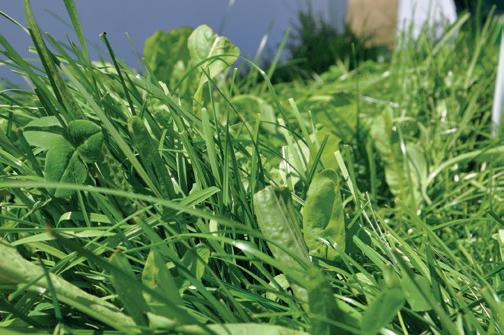
This response is even more dramat ic when the same mixtures are man aged without nitrogen, reveal trials carried out by Field Options at the Crop and Environment Research Cen tre (CERC) at Harper Adams Univer sity in Shropshire.
“The objective of the CERC trial was to test the performance of a selec tion of grassland mixtures, with grass and clover blends being compared to leading hybrid and perennial ryegrass controls,” says Mr Montgomery.

With four years of data captured, the trial has shown that the inclu
ter production by 0.8t/ha/year for swards receiving 250kg/ha of synthetic nitrogen, while the addition of red and white clover gives an uplift of 0.82.5 tonnes per year.
In both cases, the gains can easily be translated into money savings on bought-in feed and improvements in milk and meat productivity.” The trial also tested the yield response of the same mixtures when zero supplemental nitrogen was applied.
“Although some of the grass and clover mixtures struggled to perform in the first year, they subsequently went on to outyield the leading perennial ryegrass blend which had received 250 kg/hectare of N,” says Mr Montgomery.
Clover drove most of this yield boost, with white clover contributing more than 4t/ha of dry matter (DM) annually, and red clover deliv-
Below: Clover and herbs bring benefits
the mixtures tested also contained drought tolerant grasses or Boston plantain and Puna II chicory.
“The addition of these species further increased the yield response of the seed mixtures, especially in the dry season of 2020.”
This performance boost can be accounted for by the deep rooting growth habit of these species which makes them more resilient to drought by enabling them to scavenge nutrients and moisture from deeper soils.
“With normal weather patterns becoming increasingly unreliable, and early summer droughts more commonplace, livestock producers should give careful thought to the composition and make-up of their grass swards,” says Mr Montgomery.
This will safeguard against future weather-related pressures while enhancing overall productivity and forage quality, he adds.
“Including clovers and herbs in grassland leys can also unlock GS4 Countryside Stewardship payments and – in mixed farming rotations – improve soil structure and fertility for the following arable crop.”
But any nitrogen fixed by clover won’t immediately be available for uptake by companion grasses. This is because clover only generates nitrogen for its own use in the first 9-12 months of its lifecycle.
A planned reseeding strategy gives best results
Industry leaders have welcomed a Defra decision to drop plans for compulsory animal welfare labels on food items.
Proposals under consideration would have seen pork, poultry and eggs categorised according to their production method. Defra claimed the move could help drive improvements in welfare standards.
But the idea has been dropped following a concerted campaign by pig and poultry leaders. They argued that the plan would add significant costs to the food chain without delivering further clarity for consumers.
A coalition of industry bodies –including producers and processors – raised their concerns in a letter to Defra earlier this year. The letter said mandatory labelling would not deliver better animal health because production method was not a key determinant of welfare.
Similar criticisms were levelled by the National Pig Association when Defra officials presented their plans earlier this year. NPA chief executive Lizzie Wilson welcomed the decision not to pursue the consultation.

“We as an organisation argued strongly behind the scenes that compulsory welfare labelling would be a blunt tool that adds costs across the chain, while doing nothing to educate consumers about real welfare on farms.
very clear to Defra that you cannot equate welfare with method of production and that the proposed system would likely confuse, rather than inform.
“We welcome the fact that Defra has listened to us and others throughout the supply chain on this and will continue to work with them to ensure any future moves to increase transparency in the pork supply chain are proportionate and effective.”
Defra had planned a formal consultation in the spring. But it failed to materialise. Last month, officials told the National Pig Association that the department did not believe it was the right time to launch a consultation.
A Defra spokesperson said: “We are proud to have some of the highest an-
have more costs than benefits
“We will continue to work with farmers and supermarkets to improve food information for consumers and support the production of healthier, higher welfare animals through our Animal Health and Welfare Pathway.”
Defra ran a call for evidence in 2021 to gather data on the impacts of different types of labelling reforms for animal welfare. It will now examine how welfare labelling might align with wider proposals, such as eco-labelling.
It said the evidence gained suggested that there is public appetite for improved welfare labelling and made it clear it still wants to improve transparency and provide the industry with a ‘level playing field’ to promote higher welfare products.
Nominations are open for an award recognising people who have gone the extra mile for the UK pig sector.
The Chris Brant Award is named after one of the leaders of the British Pig Industry Support Group, which saw farmers blockade retail distribution centres as they campaigned for fairer prices in the late 1990s.
Past recipients of the award have included well-known industry leaders as well as many unsung heroes who have gone above and beyond in supporting fellow farmers during times of crisis for the pig sector.
Won last year by Yorkshire pig producer Anna Longthorp in recognition of her campaigning under the #BiteIntoBritish banner, the winner will be announced at the National Pig Awards in London in November.
“This award is looking at what an individual or organisation has done for the wider industry, over and above their day job,” said NPA chief executive Lizzie Wilson.
“There have been some fantastic winners in the past, who have all demonstrated that
passion and commitment to the pig industry, many of whom aren’t well known and quietly do what they do without realising the real impact they have on others’ lives.
“No doubt, there are many potential winners out there who are equally deserving.
“This award is nominated and judged by industry peers, so let us know why you think your nominee is special, the impact they have had, and why they deserve to join such an illustrious list of previous winners.”
To nominate a potential award recipient, please email NPA@npanet.org.uk.
You cannot equate welfare with production method

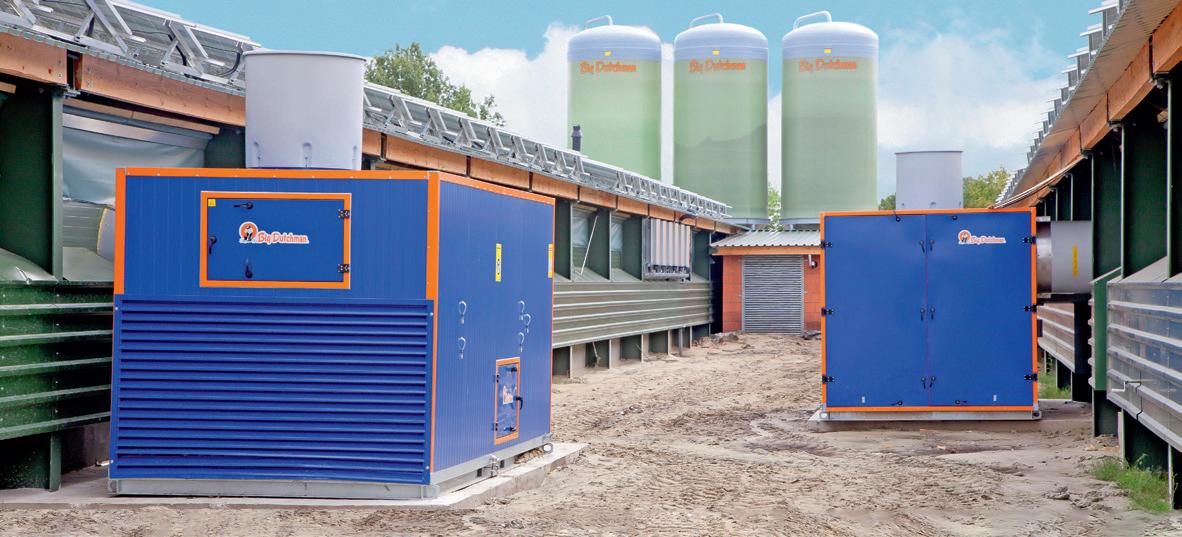
The National Pig Association says it will continue to deliver outstanding value after announcing an increase in annual subscription rates.
The NPA board agreed to a 15% increase in subs for 2024 with the fee increasing by annual inflation in subsequent years. Subscriptions are based on breeding and finishing pig numbers, with NFU members receiving a 50% discount.
Rising costs and the loss of members are being the increase. But NPA chief executive Lizzie Wilson said the association would continue to deliver tremendous value for money to members as its tight-knit team grappled with the big issues of the day.
In another significant change, agisters and contracted pig finishers will have to become NPA members in their own right from 2025 if the owner of the pigs they manage is also a member. Primary producers will need to register their contracted sites for a nominal fee per site.
“This will enable us to have direct contact with the primary producer, which will really
help when it comes to integrating membership data and getting a better picture of just who we represent,” said Ms Wilson.
Crisis within the pig sector over the past two years has seen many producers leave the industry. Ms Wilson said: “We know there’s never a right time to increase subs and that our members have just been through an incredibly tough period financially.

“But we haven’t raised our fees for a very long time and, over the past year, we have lost a significant amount of subscription income
due to producers exiting the sector and sows being absorbed elsewhere, where we don’t recuperate the same fee.”

With a General Election due before January 2025, the next 18 months are seen as a crucial lobbying time for the pig sector. Ms Wilson added: “We need to increase our subscriptions in order to maintain the same service to members.
“There is going to be a lot more coming down the line, especially as the political parties gear up for the next General Election. I can give my absolute assurance to members that the team will step up and continue to deliver outstanding value.”
NPA chairman and Norfolk farmer Rob Mutimer said the board had increased subscriptions because inflation had pushed up costs. At the same time, the decline in the sow herd meant the association had lost lots of members.
“We try to run the association as fleetfootedly as possible, but there comes a time where we have to invest or the association won’t be able to do the work we do,” said Mr Mutimer.
“There are more challenges coming down the road from all government departments on top of the really important work we are doing on the contractual practice review, and we need the resource in place to deal with it.”
There’s never a right time to increase subs
Lizzie Wilson
The emerging trend could be due to producers perceiving the summer to be a lower risk period for coccidio-
“Producers often consider the summer to be a ‘safe space’ to change coccidiosis programmes or loosen biosecurity protocols. Whereas, over the winter, everyone tends to ‘buckle up’ when it comes to disease prevention.
But Ms Ashworth warned: “This really isn’t the case. The decline in I2 we’ve seen over the summer is inevitably linked to the increase in coccidiosis, most notably E. maxima, seen

la – the coccidia species most likely to cause an increase in mortality, and generally not seen in high levels in the UK. Infection with this species results in a greater need for medical intervention.
“Despite the improvements in I2 going into winter, the instability of the summer still impacted birds, especially with pododermatitis, where wet litter was a major contributor to the highest levels of seasonal disease seen in recent years.”
With I2 score strongly correlated to bird health, welfare, and performance, producers should make sure coccidiosis prevention programmes remain stable throughout the season, said Ms Ashworth.
testinal Integrity (I2) scores during the spring, with a further decline, far beyond that seen in 2021, going into the summer. Scores began to improve again over the autumn into win-
The report shows that 18% of birds presented with gross and microscopic E. maxima lesions during summer 2022, compared to just 5% in the same period in 2021.
The latter stages of summer also saw a five-fold increase in E. tenel-
“Maintaining and improving I2 will support the profitability and environmental sustainability of broiler production. For example, for every one unit increase in I2, ADG increases by 0.04g and FCR improves by 0.13 points.
“To put this into perspective, a poultry company producing 100 million broilers per year, could see an income boost of £614,900 by improving their I2 by five points.”


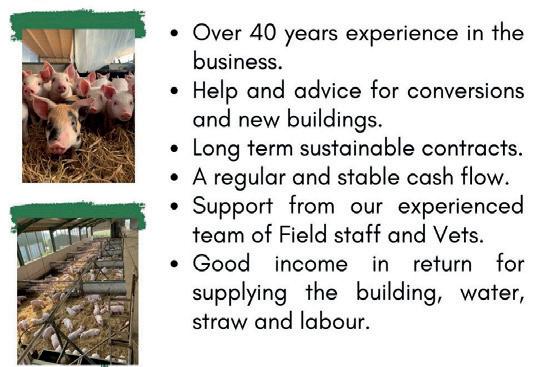













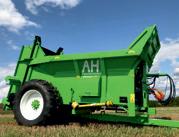

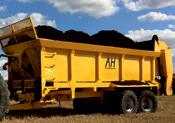









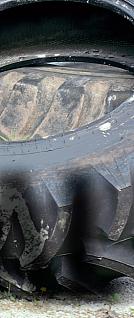
























Pig slurry and poultry manure could be used to generate clean energy while providing commercial opportunities for farmers, say university researchers.
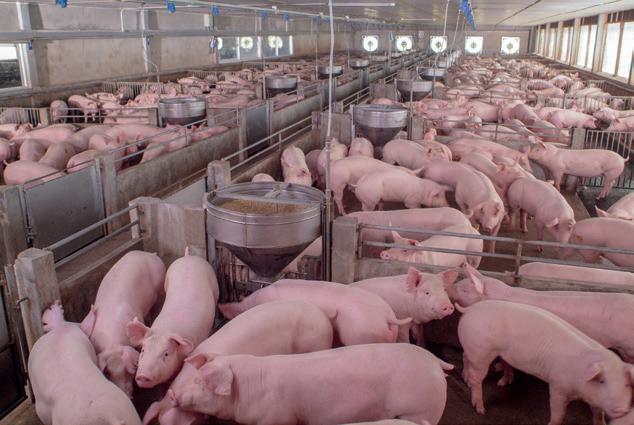
Funding to explore energy generation from on-farm waste has been secured by BACB Renewables in partnership with Leeds University. The study will analyse energy reduction and storage opportunities, as well as identifying the most viable waste for biogas production..
Huge potential
Researchers behind the £212,000 project believe there is huge potential for farmers to tackle climate change through on-farm renewable energy generation and waste management. As a feedstock, they are focusing on livestock waste and insect farming.
Agriculture is responsible for 11% of UK greenhouse gas emissions, said Lloyd Glanville, managing director of BACB Renewables. “We have high
well as boosting economic productivity and resilience, particularly in the context of increasing inflation and rising energy costs.
Energy demands
The first part of the study will involve baselining energy demands and fuel sources.
Different waste samples such as pig slurry, poultry manure and insect larvae castings and excrement will be analysed to identify the most viable waste feedstock for biogas and insect production using a 40ft walk-in insect bioreactor provided by insect technology company Entocycle.
The study is one of 50 projects to secure funding from Defra and UK Research and Innovation.
Findings will help support farmers raise animals and crops at reduced carbon and energy costs while boosting as well as boosting their economic sustainability, productivity, and resilience, say the researchers.
Below: Poultry manure is already used to generate renewable energy

tems, and a testbed for the integration of technologies that support sustainable approaches to net zero.
The study will not only explore how farm waste can be transformed into renewable energy but also how circular SMART systems may be used to diversify income streams and protect the local environment.
This includes reducing the impact of livestock farming on the environment, such as lowering river pollution, which the Environment Agency says is often caused by high phosphate and nitrate levels from animal waste ending up in local waterways.
Gesa Reiss, senior innovation fellow in smart agri-systems at Leeds University, said: “To meet the challenges of sustainable food production and environmental sustainability, we must continue to work with partners to drive innovation and discovery in research.
“This is an excellent example of where academics, businesses and partners are coming together to tackle challenges in the UK farming industry. We’re excited to see the outputs of this study and growing our collaborative partnerships in the future.”
Innovate UK agriculture director Katrina Hayter said competition for funding demonstrated the sheer breadth and quality of innovation within the UK agri-food sector.
“We’re proud to be able to help deliver these funding and partnership opportunities to the sector, bringing together farmers, growers, technologists and researchers in a common aim of making the UK food system more sustainable and resilient.
“Whether improving existing production or introducing novel foods and techniques, the winners have all risen to the innovation challenge and we look forward to supporting their development further.”
‘Huge potential’ for Integrated onfarm renewable energy generation and waste management
We’re excited to see the outputs of this study
To maximise milk yields from forage remember to add Molasses!
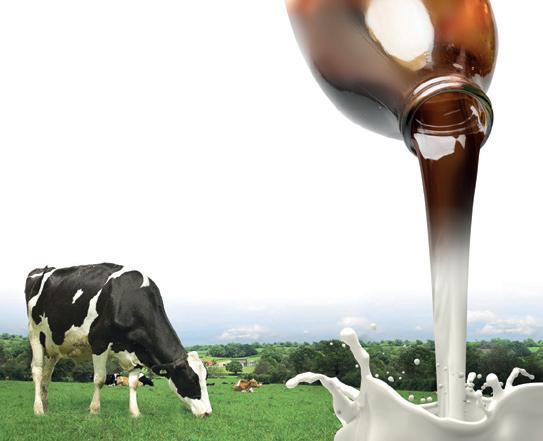
For more information about our extensive range of liquids and to find your local merchant please call us on 0151 955 4850 or visit www.unitedmolasses.com
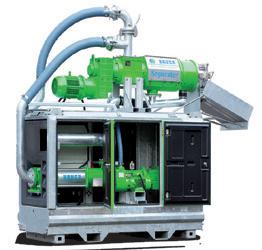
THE BAUER SEPARATOR CONVERTS SLURRY INTO A VALUABLE FERTILIZER.


SUITABLE FOR THE FOLLOWING APPLICATIONS:

• Agricultural applications: Separation of cow, pig and chicken manure
• Food industry: Separation of vegetable waste
Slaughter houses: Separation of paunch content
Adrian Tindall 07708 919597 a.tindall@bauer-at.com
Pharmaceutical industry: Separation of poppy seed mush
• Biogas plants: Before and after fermentation
• Distilleries
Rob Jackson 07939 410417 r.jackson@bauer-at.com
www.bauer-at.com
Final touches are being put in place for next month’s UK Dairy Day – the annual oneday showcase for the dairy industry held at the International Centre in Telford, Shropshire.
Thousands of visitors are expected to attend the show, which takes place on Wednesday, 13 September. The day will include seminars, exhibitions, practical demonstrations and a full programme of livestock classes.
Seminars will include a range of subjects related to dairy herds and farm businesses. A full list of the topics to be covered is expected to be published this month. A new product zone will showcase dairy-related items launched into the market over the past 12 months.
Practical demonstrations will include type classification and linear scoring; foot trimming, blocking and knife sharpening; and an innovative session which will see calves painted to
help visitors visualise and better understand dairy cow anatomy.
The NBDC breed village will feature practical demonstrations and breed societies trade stands. During the day members of the NBDC Classification team will run type classification and linear scoring demonstrations for different breeds.
At each session, the audience will have the opportunity to learn more about the services offered to dairy farmers. In conjunction with the linear scoring demonstration, a virtual cow demonstration will run on a TV. Virtual Cow is an educational tool which graphically illustrates the linear scale for cow conformation traits. This allows for improved understanding of dairy cow conformation and easy visualisation of anatomical differences within each trait across the linear scale.
Wednesday 13 September 2023, 8.00am to 5.30pm
The International Centre, St Quentin Gate, Telford, Shropshire, TF3 4JH
• Trade stands throughout internal and external exhibitions areas.
• Cattle show hosting National Show for Ayrshire, Brown Swiss and Holstein.
• Seminars, Breed Village, Sharing Knowledge Zone and Careers Board.
• New Product Competition
• Practical demonstrations
The UK Dairy Day 2023 cattle show will feature six dairy breeds with a leading line-up of judges to cast their professional eye over the show ring.
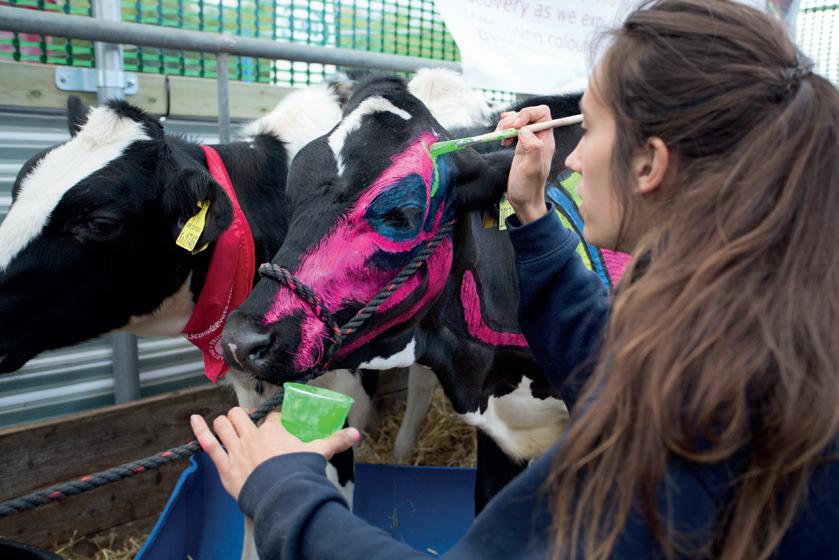
Judges
National Ayrshire Show - Colin Christophers
National Brown Swiss Show - Brian Weatherup
National Holstein Show - Iwan Morgan
Dairy Shorthorn classes - Gwyndaf James
Guernsey classes - Colin Christophers
Jersey classes - John Waller
T: 01923 695225
E: info@ukdairyday.co.uk
W: www.ukdairyday.co.uk
The outside exhibition area will see the return of Tim Carter for advice on foot trimming, blocking and knife sharpening using the right tools for the job – demonstrated on dairy cows throughout the day.
These practical demonstrations will streamed to a large TV screen with commentary so visitors can see firsthand the detail of the trimming, blocking and knife sharpening.
They will also be highlighting the Cattle Hoof Care Standards Board, a self-funding non-profit organisation to improving the health, welfare and mobility of the national herd, through ensuring its members promote, achieve and maintain a recognised and validated standard of cattle hoof care.
Special presentations by the team from Scarsdale Vets in the calf rearing zone will use painted animals to visualise and understand cow and calf anatomy. The ‘Beneath the Black and White’ calf painting sessions will take place throughout the day.
Scarsdale Vets will also paint the calf head to demonstrate the disbudding nerve block; and calf chests and abdomens, to talk about pneumonia and digestion.





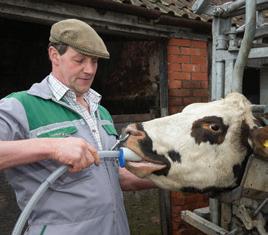

Walkers in the countryside are being warned against caus ing alarm to cattle – after a number of fatalities.

Rural insurer NFU Mutual has pro duced new signage for farmers to dis play at field entrances calling for walk ers to move quietly and predictability, highlighting how livestock can react suddenly to people’s presence.
Incidents with livestock remain a major cause of fatal and serious inju ry to farm workers and the public, ac cording to the latest accident figures. NFU Mutural has teamed up with the Farm Safety Foundation and the NFU for the joint safety campaign.
Some 27 people were killed in farm ing-related activities in the year to April 2023. As well as farmers and farm workers, they included six members of the public. Eight of the fatalities involved cattle.
The signs encourage walkers to keep dogs on leads but release them
Half of all dog owners would keep their dog on the lead if chased by cattle, rather than letting go, according to a recent NFU Mutual survey. Some 86% of respondents said they would find signage about walking in fields with livestock helpful.
NFU Mutual rural affairs special-
Shutterstock.com)

ist Hannah Binns said farmers were proud to feed the nation and enhance the environment. But it was important to remember that the country-
Farmers have a legal duty to consider the health and safety of people using public rights of way through their fields. Ms Binns said the signs aimed to highlight that walkers should en-
Farm Safety Foundation manager Stephanie Berkeley said: “Farming activities can pose risks to you, your workers, and also to any contractors or visitors – including walkers, hik-
NFU vice president David Exwood said: “When walking through a farm, it is crucial for people to remember it is a working environment and so they should prioritise their safety and re-

“We hope these signs will serve as a valuable reminder for walkers to be mindful of their surroundings, enabling everyone to appreciate the countryside responsibly and safely.”
Signs can be requested from local NFU Mutual agency offices.

were not fully being utilised – and to be in a stronger position he needed to qualify as a chartered accountant.
For most of my farming career, I have remained loyal to one particular accountancy firm – or to be more precise, loyal to one particular accountant.
A former rugby-playing mate who never passed the ball when peeling off the back of a scrum is retiring after almost 48 years with the same firm of accountants. So I asked him to reflect on his career and give me his thoughts on the future of agriculture.
James Cater came from farming stock and hoed sugar beet on his father’s smallholding as a youngster in 1975. This convinced him to find an office job. Encouraged by their strong agricultural client base, Whiting & Partners in Ely provided that refuge.
Despite having no desire to farm, James nonetheless retained an interest in the industry. These were were the days before computers when a set of annual accounts usually started with a cardboard box full of assorted receipts, invoices, bank statements and cheque book stubs.
Everything had to be arranged in order –usually by the juniors before being passed to the manager or partner for review. James quickly realised that as a junior his talents

He spent the next nine months at Norwich City College undertaking an accountancy foundation course. Years of correspondence courses and block release courses followed before finally – in his mid-20s – he gained his much sought after qualification.
In due course, James became a partner in Whiting & Partners. He was given responsibility for clients with years of farming knowledge – a big responsibility given his relative youth and inexperience compared to their longstanding agricultural know-how.
Despite this mismatch, he was tolerated and eventually earned his clients’ trust and confidence. So much so that many of those early clients are still retained today. As his client portfolio expanded, James represented Whiting & Partners in agricultural groups across the country.
The knowledge he gained from this experience led him to set up his own farming group – bringing together partners and staff from across the firm who work closely with farming clients.
“It’s always interesting to listen to farmers regarding the state of the industry – but it is curious from an accountant’s point of view to look back and consider how agriculture has changed,” he says.
Over the past 50 years, the average farm size has increased, fields and machinery have got bigger, new crops and end markets have emerged and some once-popular crops are now
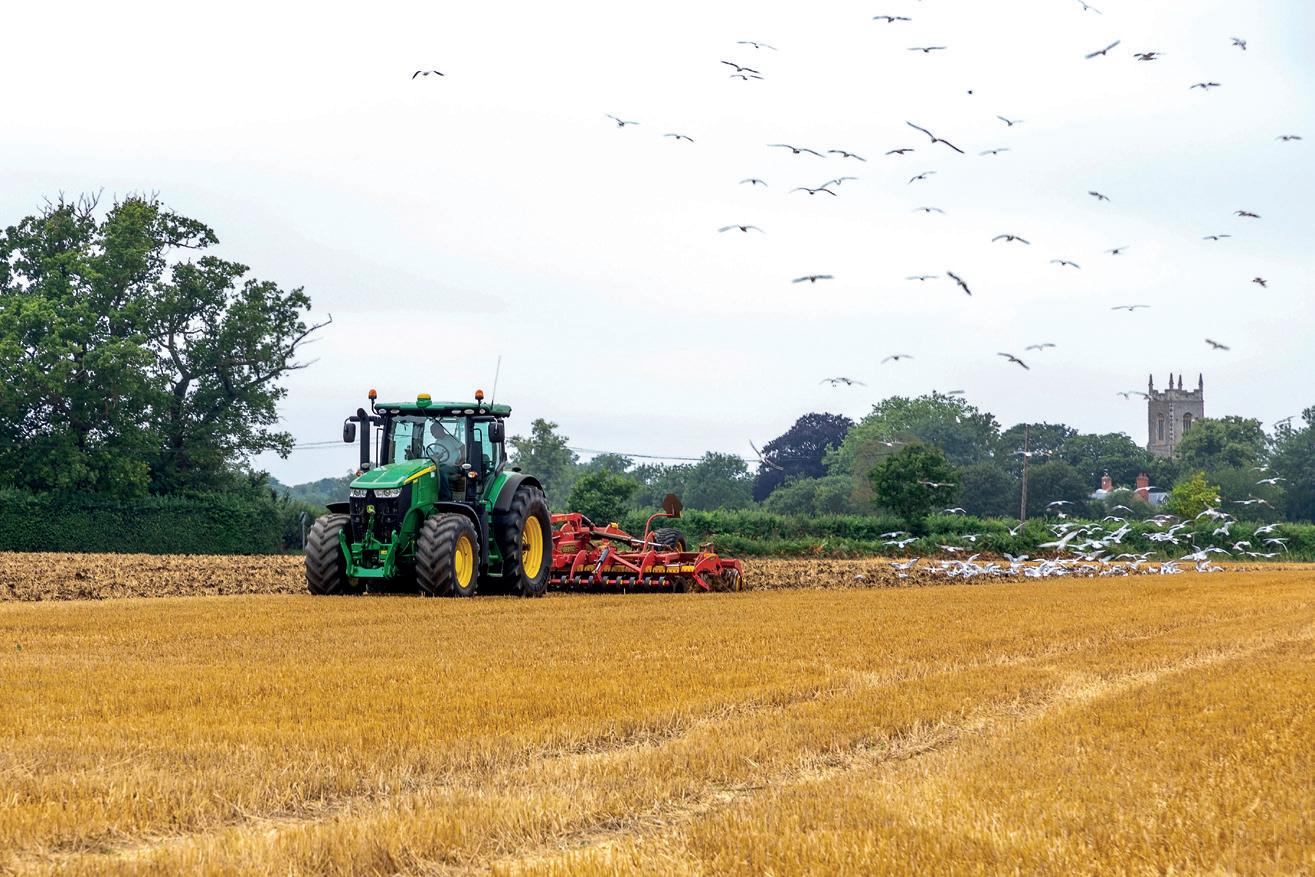
seldom grown. Farm workers are hard to come by. Subsidies have come and almost gone.
Today, the importance of food security seems to lag behind the need to reverse the decline in biodiversity and improve the landscape – at least until gaps appear on supermarket shelves.The new entrant farmer seems almost mythical.
Looking ahead, James foresees an industry with natural advantages. Farmers occupy land, which has many potential uses. It can provide food, energy and environmental gains. And neither food nor energy is going out of fashion any time soon.
The discussion in most circles has moved beyond whether global warming is happening. It is increasingly about how we can achieve net zero. This will create opportunities for farmers and landowners – but any remaining farmland must feed more people.
For me as a client, James has always provided sound, sensible advice. He hasn’t always given me the answer I was looking for – but he has straight to the point, direct and fair. He has been a good friend and his retirement will be a huge loss to the agricultural accountancy world.
Someone once described Whitings LLP as a 19th century firm with 21st century technology. It is conscientious, polite and pays attention to detail while offering modern, up-to-date advice – much of it at the behest of James Cater himself.
This description is extremely apt and I wish James good luck in his well-earned and well-deserved retirement.
A good bean counter is a good friend when it comes to
Farm workers are hard to come by
Have you considered swathing your 2023 Harvest Oil Seed Rape?
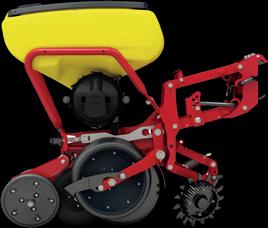
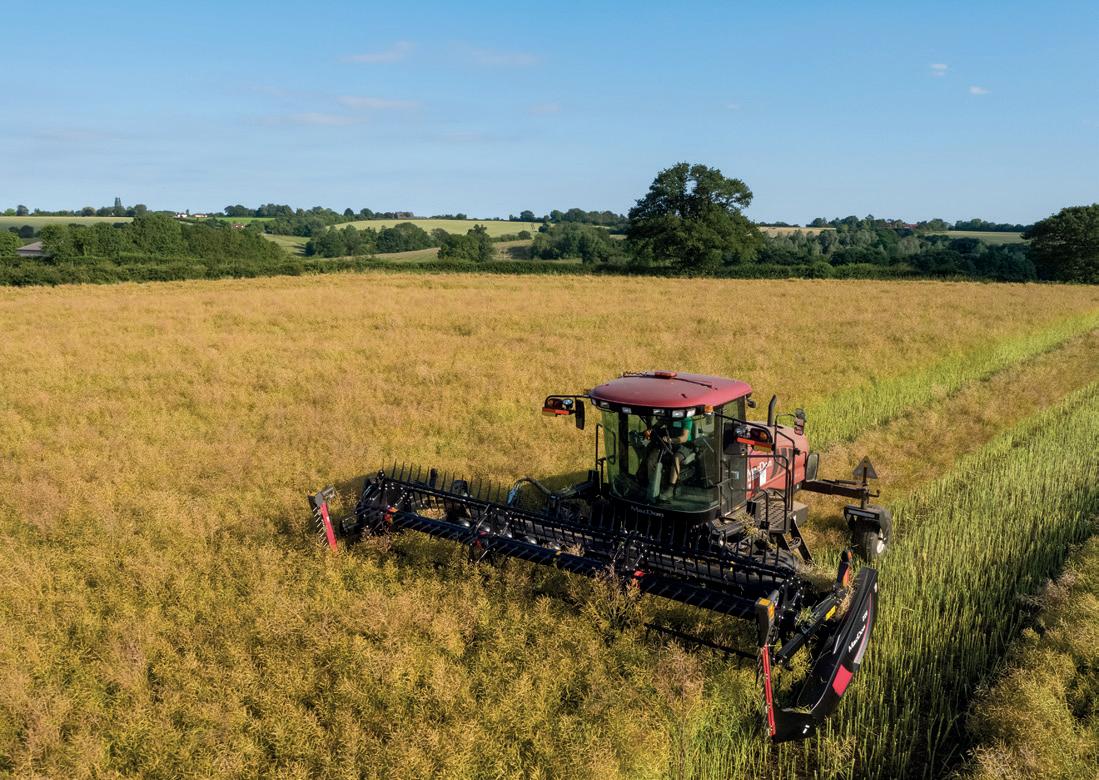


• Cheaper than spraying off with Glyposate & Pod stick
• Shorter harvest interval (10-14 days) from swathing, therefore OSR is harvested before wheat is ready.






• Less vulnerable to losses from weather












• Cheaper to harvest as more of the plant is dead therefore easier to thrash/chop.
• Also able to swath Borage, Peas, Echium, all organic crops


Vilofoss use the latest knowledge from across Europe to optimise feed composition to achieve optimum nutritional and economic performance based on the individual conditions on the farm.
● Individually tailored feed to the individual herd

● Feeds formulated using on-farm ingredients

● Balanced with vitamins, minerals and amino acids
● Formulating feed to future demands of food safety and focussing on the reduction of antibiotic/Zinc use
part of
Effective against...
Newcastle Disease Virus
Fly Larvae
• Effectively controls bacteria, fungi, viruses, worm eggs, parasites and fly larvae

• Reduces ammonia
Absorbs moisture
Coccidia
PEDV
Streptococcus spp.
Campylobacter jéjuni
Ascaridia galli
Salmonella spp.
E. coli
Clostridium perfringens
Staphylococcus spp.